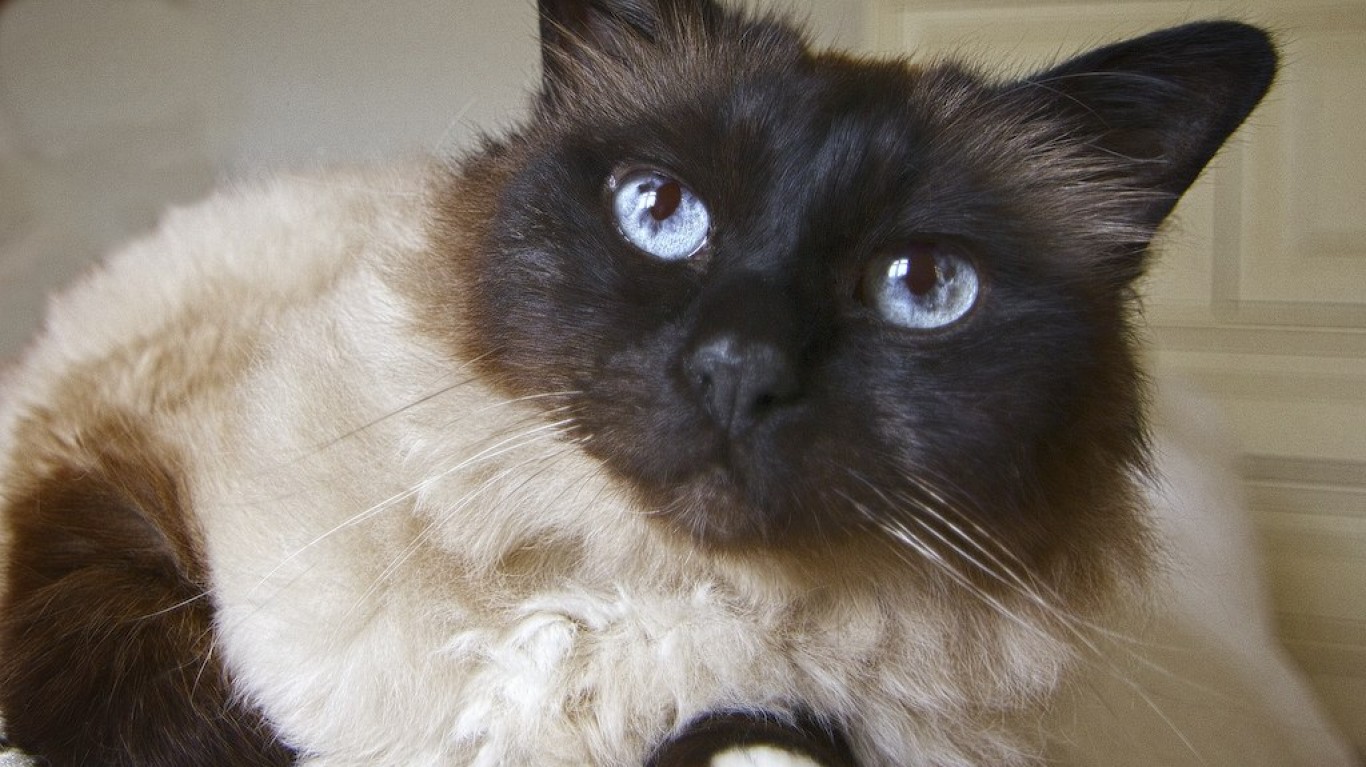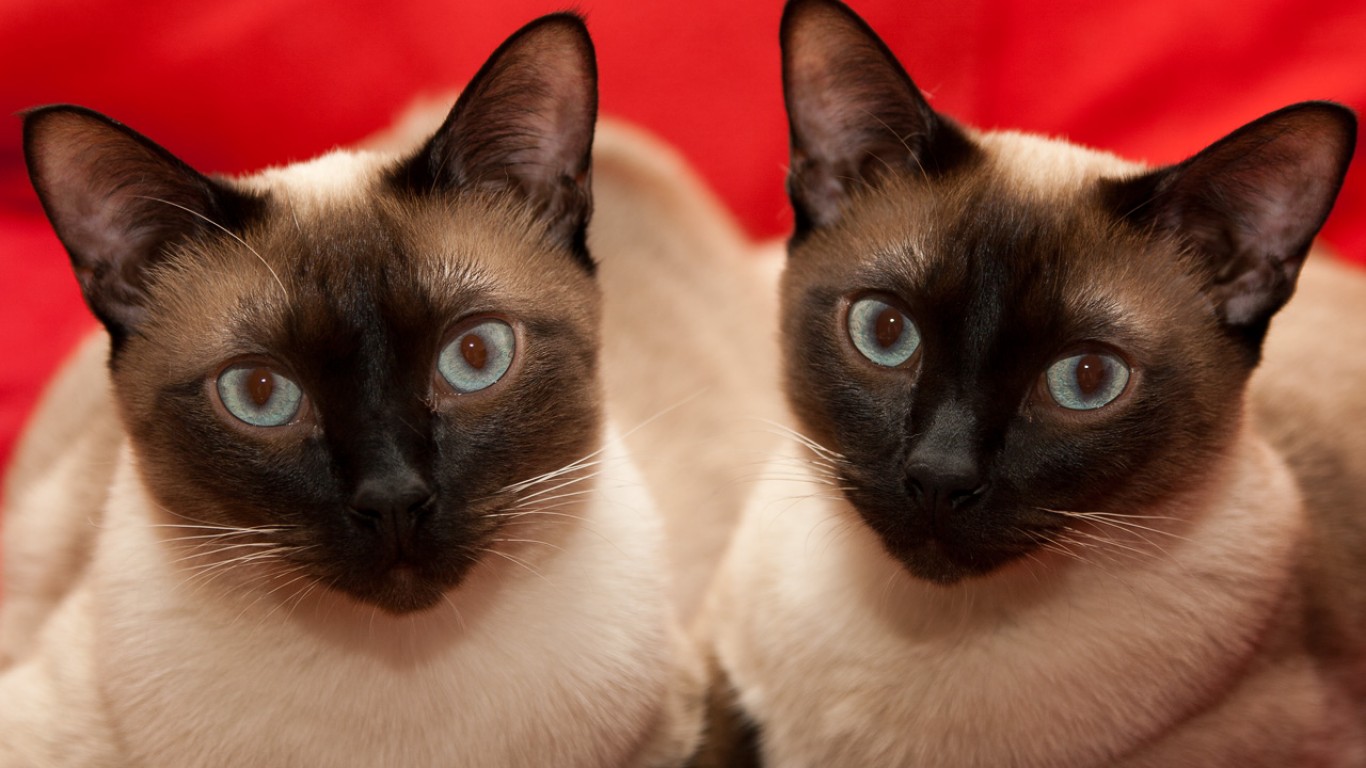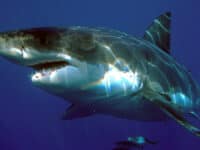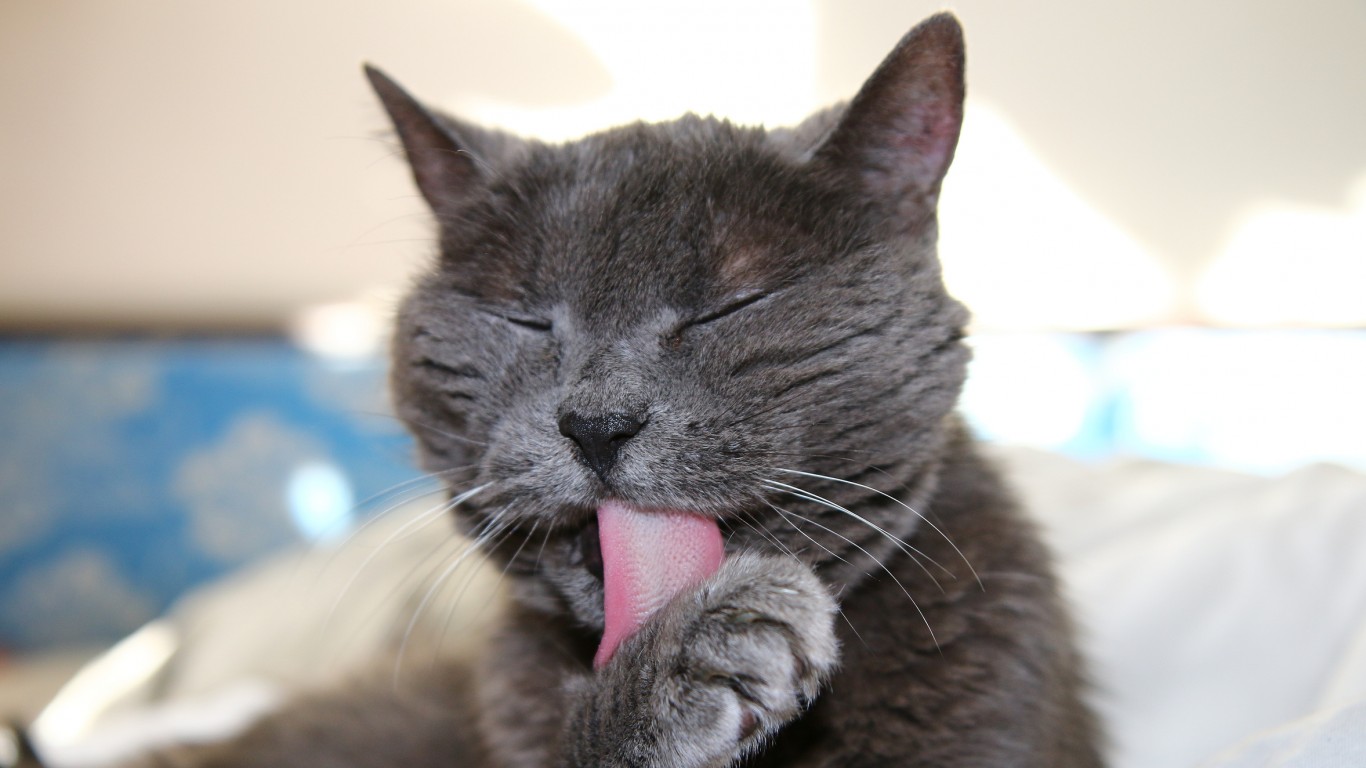
There are 600 million cats in the world. Just over 200 million have owners. The rest are strays. According to the American Veterinary Medical Association, 32 million households in America have a cat. Cats probably started living with people around 3700 years ago.
Car owners can be particular about which breeds they own. Short hair domestic cats are the most popular in America. Many fewer people in the U.S. own more exotic breeds which include Persian and Bombay cats.
All About Cats set out to identify the world’s most beautiful cats in a piece of research titled “Beautiful Cats: The Golden Ratio Reveals The Most Beautiful Cat Breeds“. The methodology is idiosyncratic, so many cat owners will not agree with it.
The way that the study calculates cat beauty is to measure the distance between different places on this cat’s face. These include the eyes, nose, and mouth. Apparently, the same methodology is used to measure movie stars and celebrities. The ideal ratio is 1.62. According to Britannica, this measure originated with the ancient mathematician Euclid and involves a complex formula.
The researcher picked two cats with scores of 1.65–the best. These are the “Norwegian Forest” and “Russian Blue”. The study describes the “Norwegian Forest”: “This gorgeous cat breed is known for its regal looks and long, thick coat. They tend to be quite large, with adults weighing in at roughly 12-16 pounds and standing at around 9-12 inches tall.” Its description of the “Russian Blue”–“Their silvery coloring and green eyes make them a particularly striking cat, so they are an incredibly popular breed.” The price to buy each of these breeds is about $1,000.
In all the study measures 46 car breeds. The ugliest is the “Himalayan” which gets a score of 56.87.
Will the research affect what breeds people keep as companions? Almost certainly not. Beauty is in the eye of the beholder.
Click here to see the most beautiful cat breed in the world
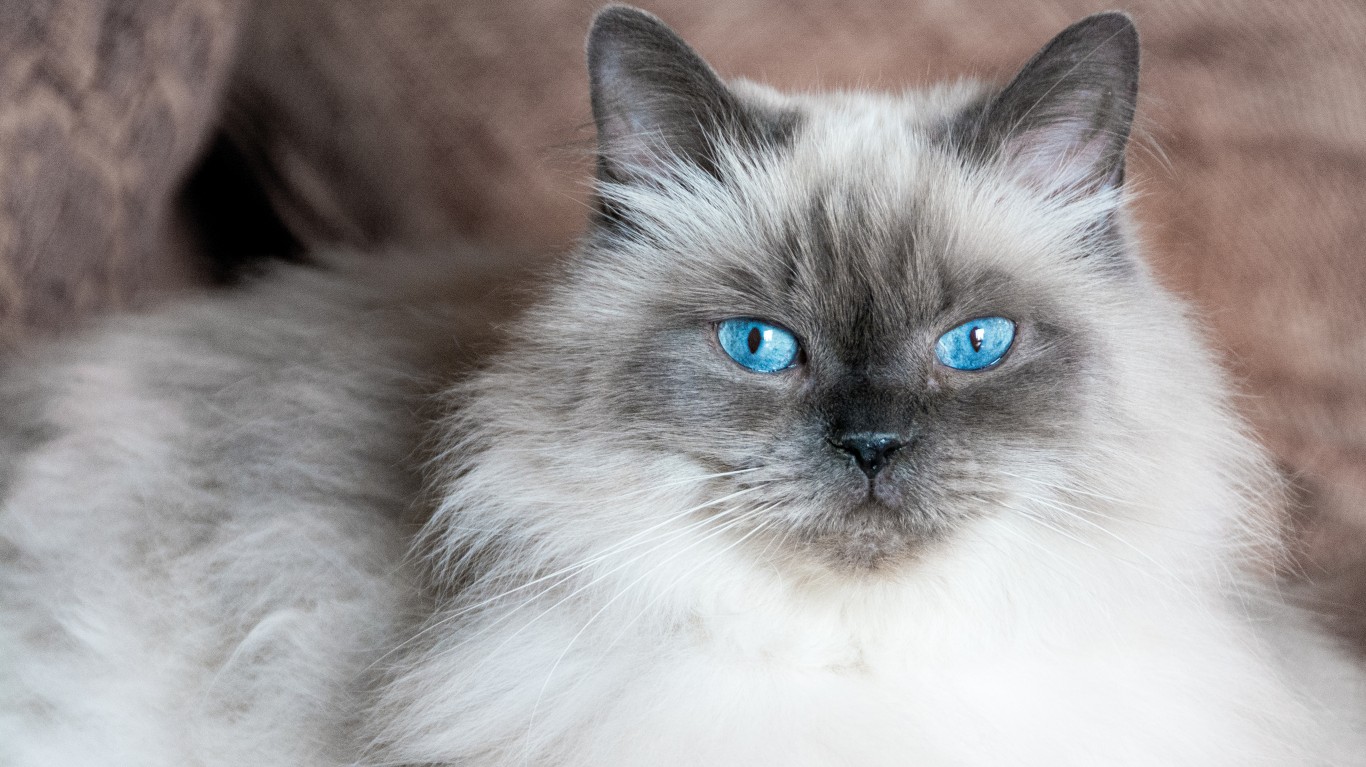
46. Himalayan
> Ratio: 58.49
> Difference from Golden Ratio: 56.9
[in-text-ad]
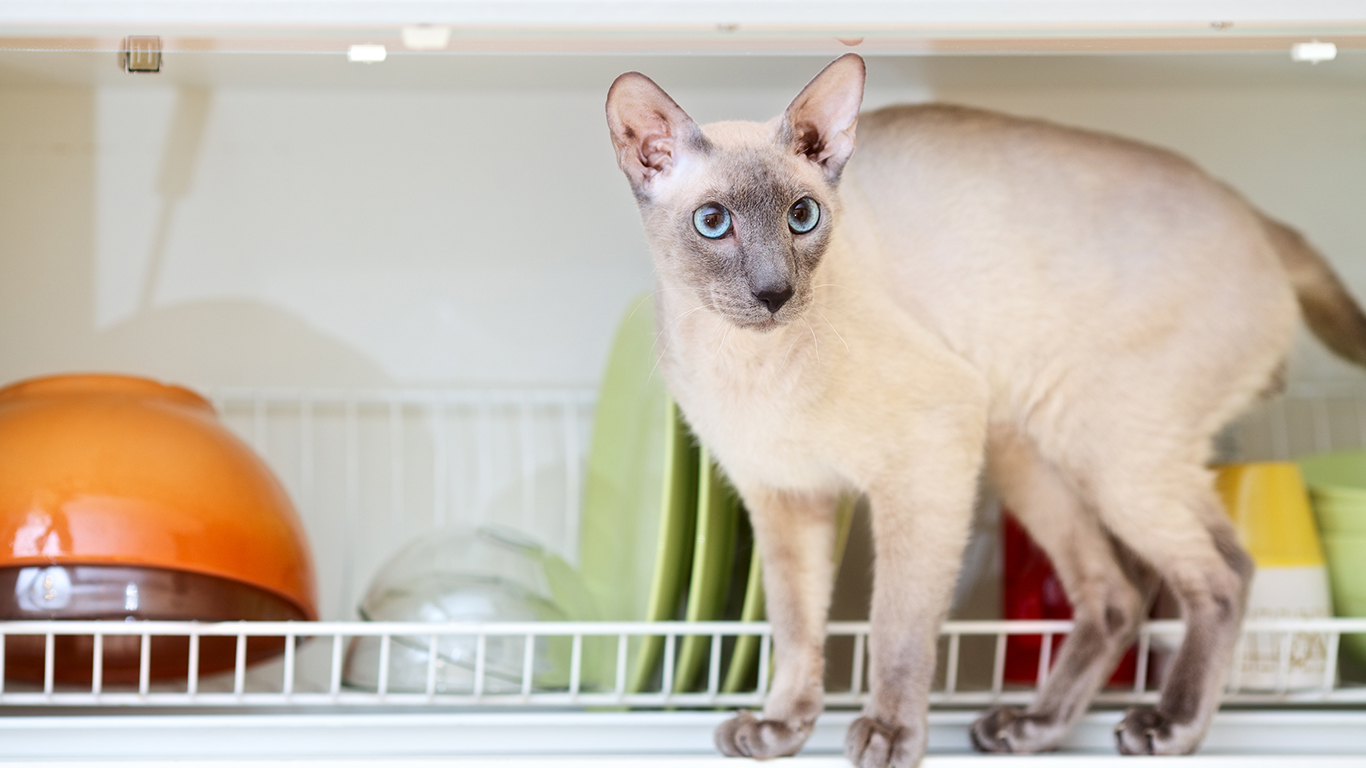
45. Peterbald
> Ratio: 19.78
> Difference from Golden Ratio: 18.2
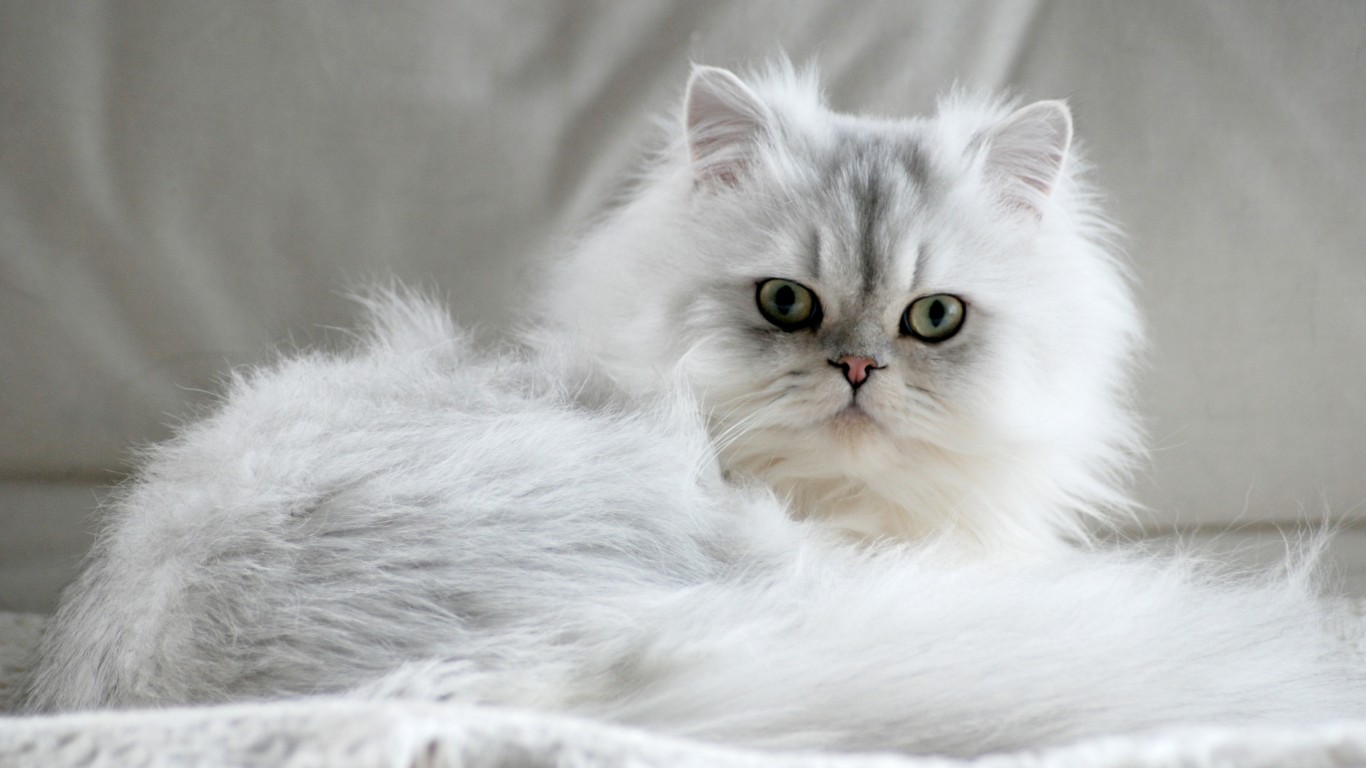
44. Persian
> Ratio: 7.49
> Difference from Golden Ratio: 5.9
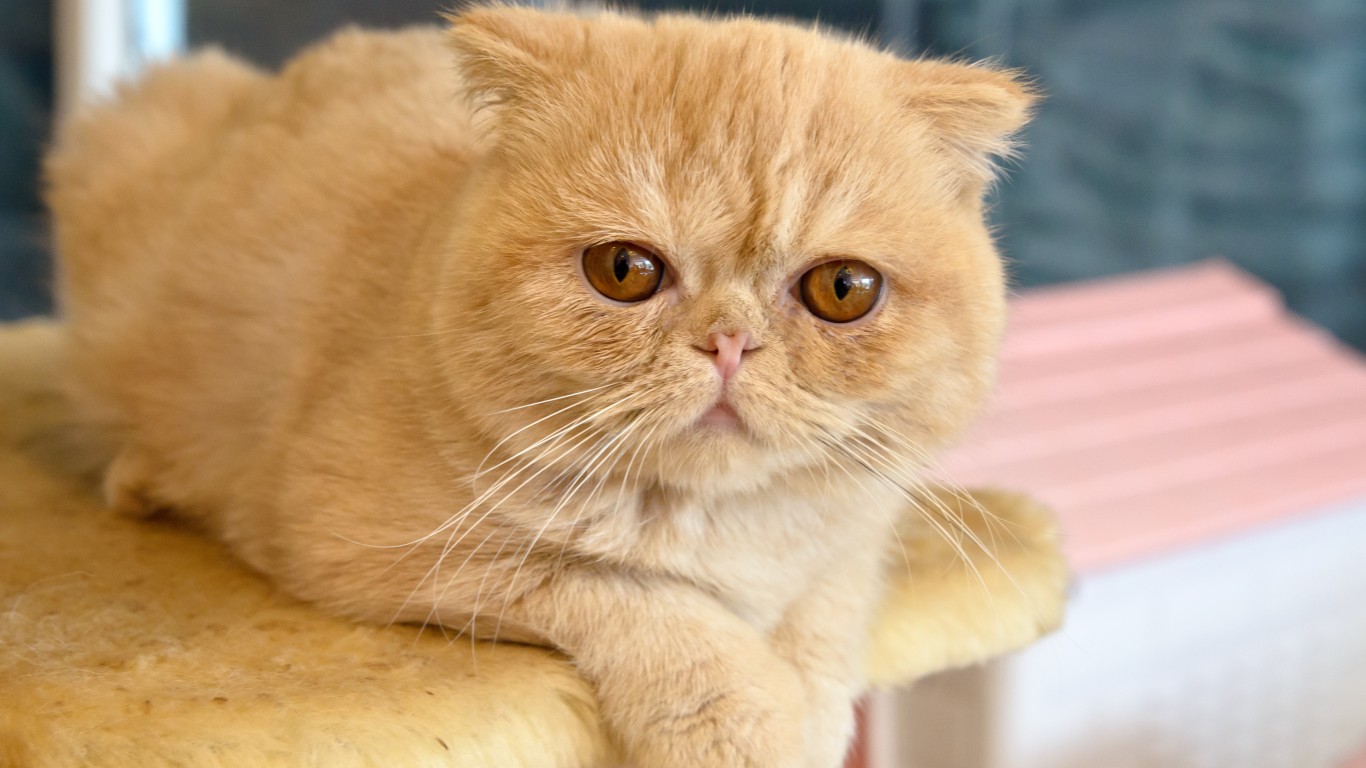
43. Exotic Shorthair
> Ratio: 3.83
> Difference from Golden Ratio: 2.2
[in-text-ad-2]
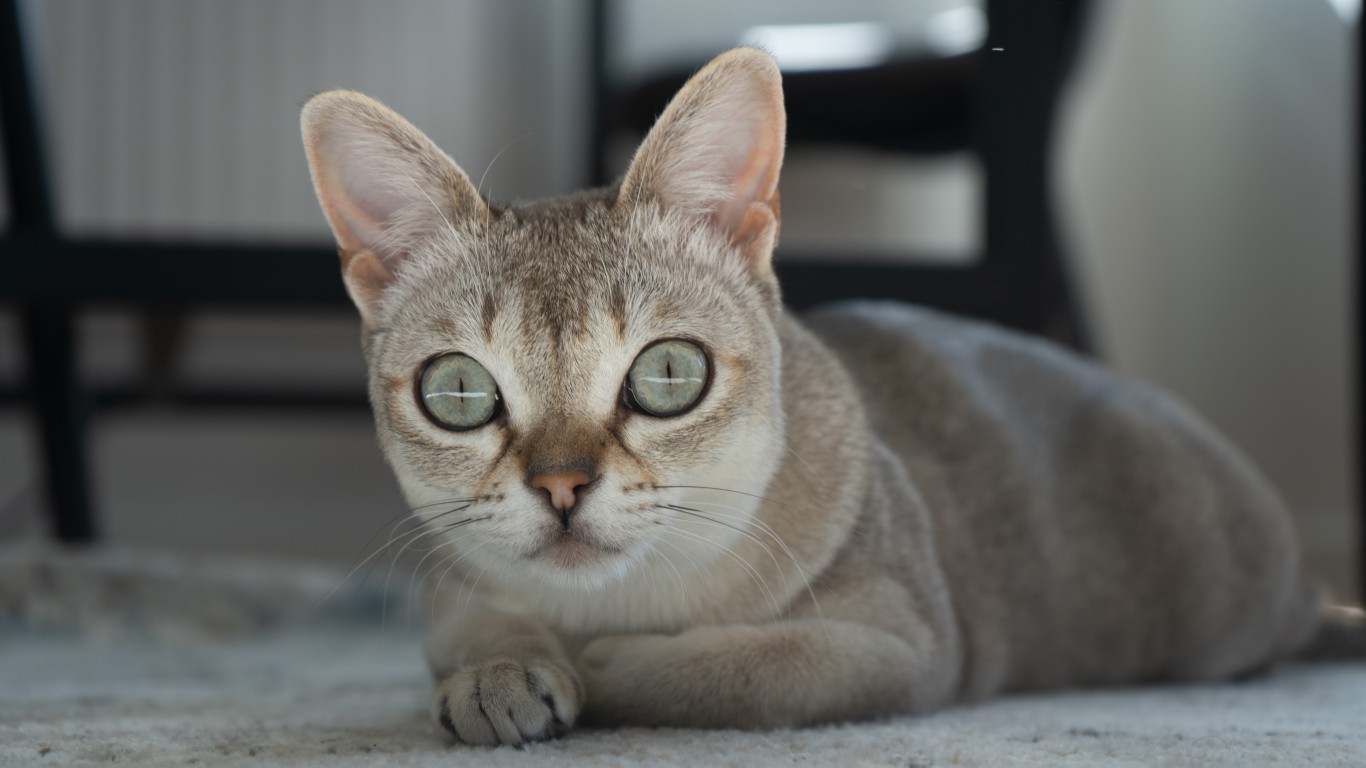
42. Singapura
> Ratio: 3.37
> Difference from Golden Ratio: 1.8
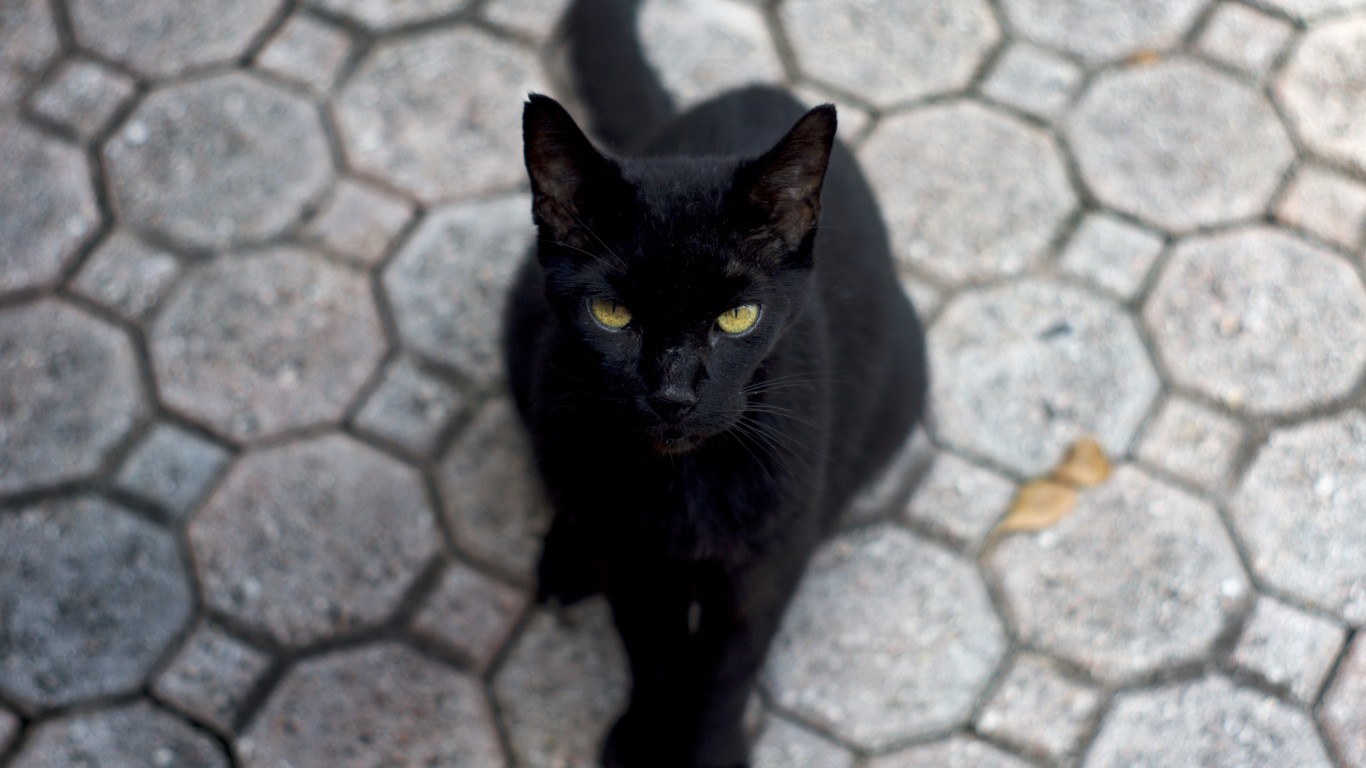
41. Havana Brown
> Ratio: 2.55
> Difference from Golden Ratio: 0.9
[in-text-ad]
39. Devon Rex
> Ratio: 2.25
> Difference from Golden Ratio: 0.6
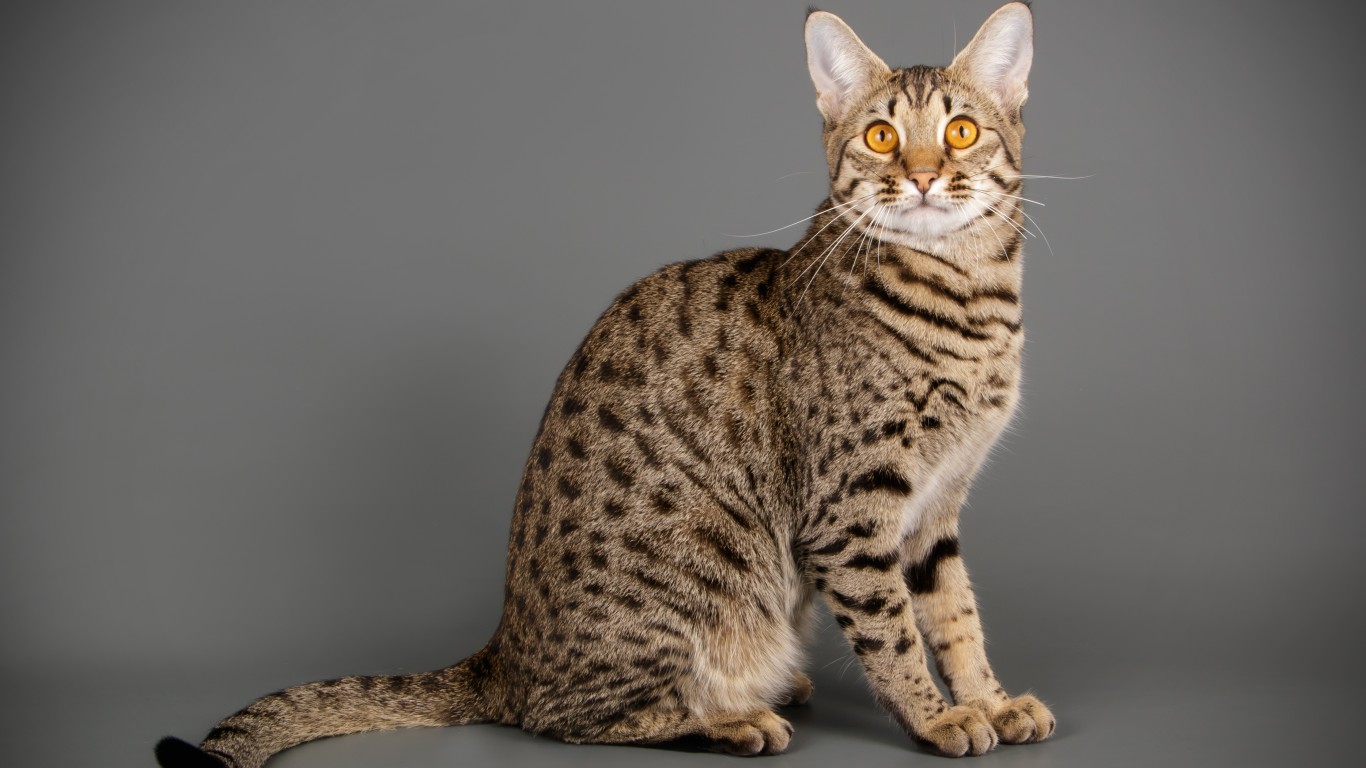
39. Savannah
> Ratio: 2.25
> Difference from Golden Ratio: 0.6
[in-text-ad-2]
37. Abyssinian
> Ratio: 2.16
> Difference from Golden Ratio: 0.5
35. Burmese
> Ratio: 2.11
> Difference from Golden Ratio: 0.5
[in-text-ad]
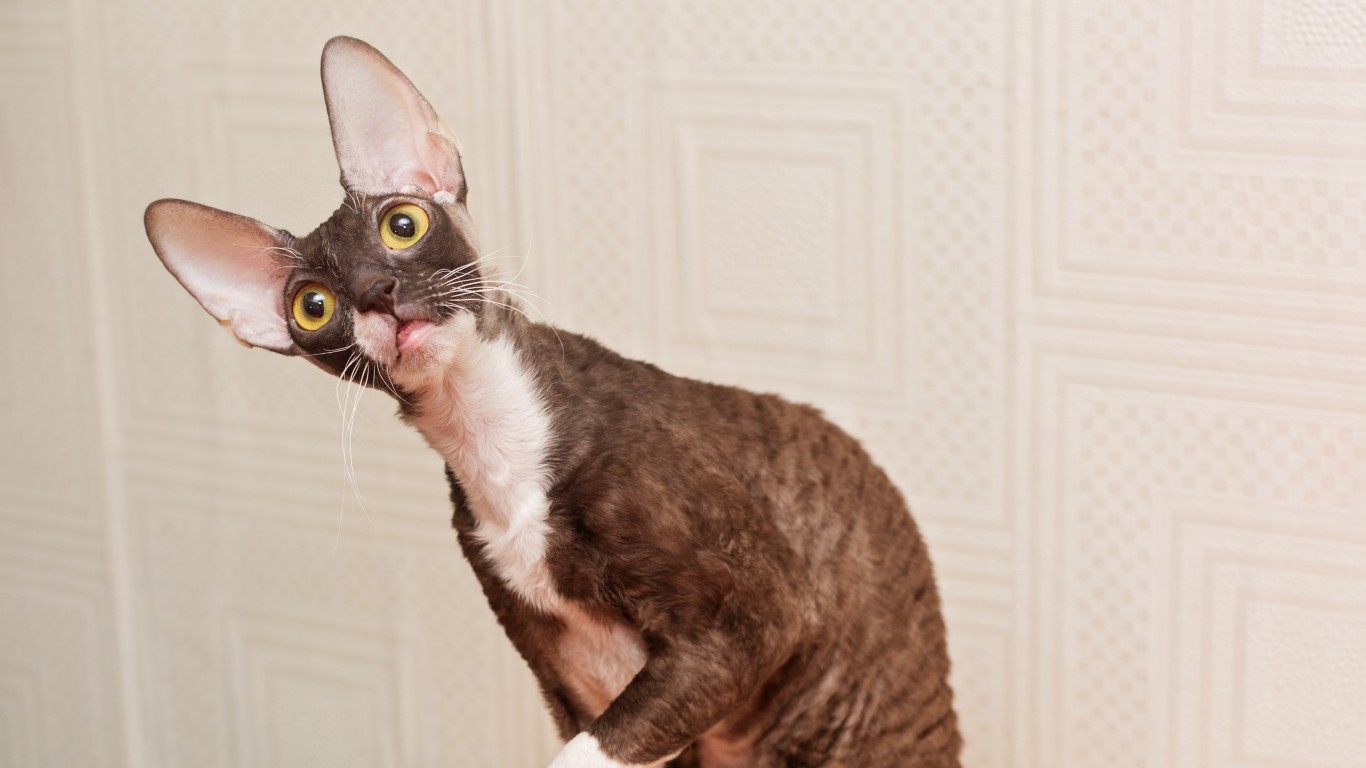
35. Cornish Rex
> Ratio: 2.11
> Difference from Golden Ratio: 0.5
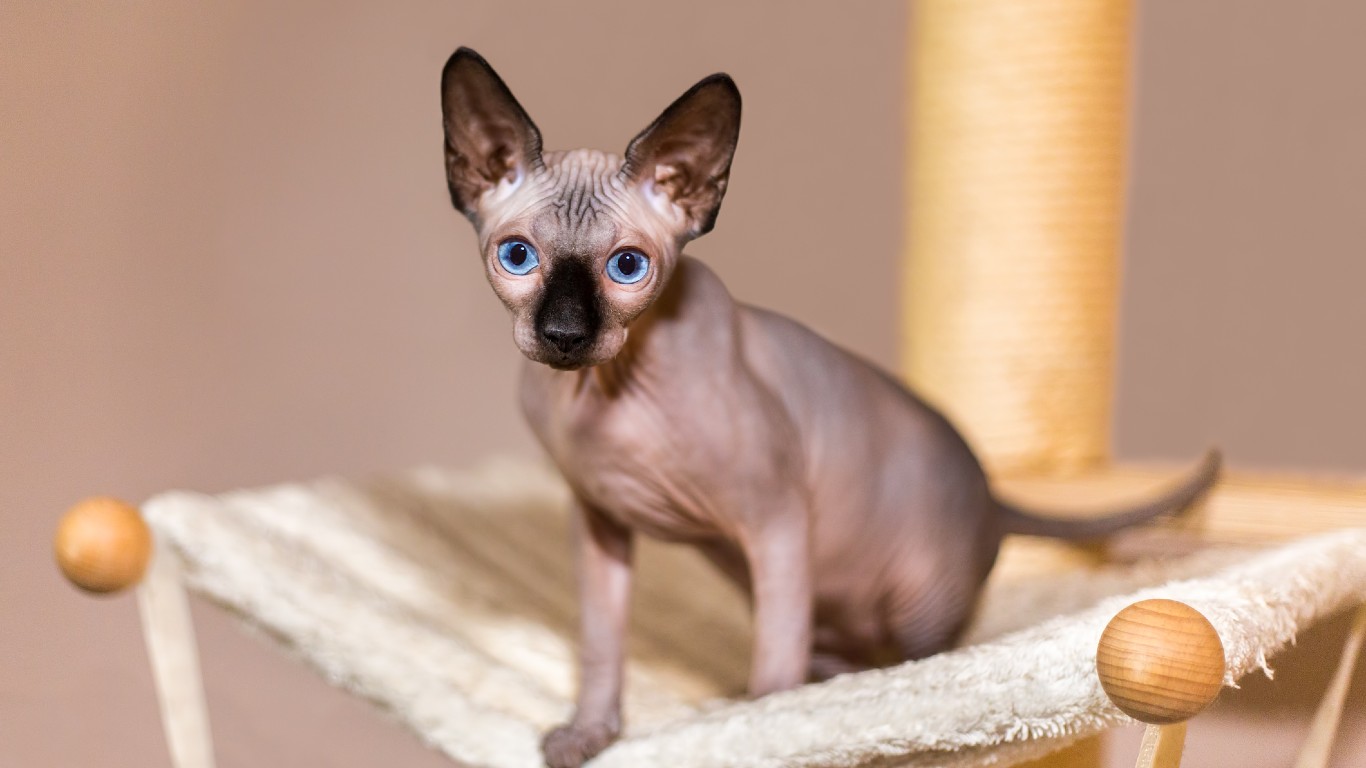
34. Sphynx
> Ratio: 2.07
> Difference from Golden Ratio: 0.5
33. British Shorthair
> Ratio: 2.06
> Difference from Golden Ratio: 0.4
[in-text-ad-2]

32. Somali
> Ratio: 2.05
> Difference from Golden Ratio: 0.4
31. Bengal
> Ratio: 2.03
> Difference from Golden Ratio: 0.4
[in-text-ad]
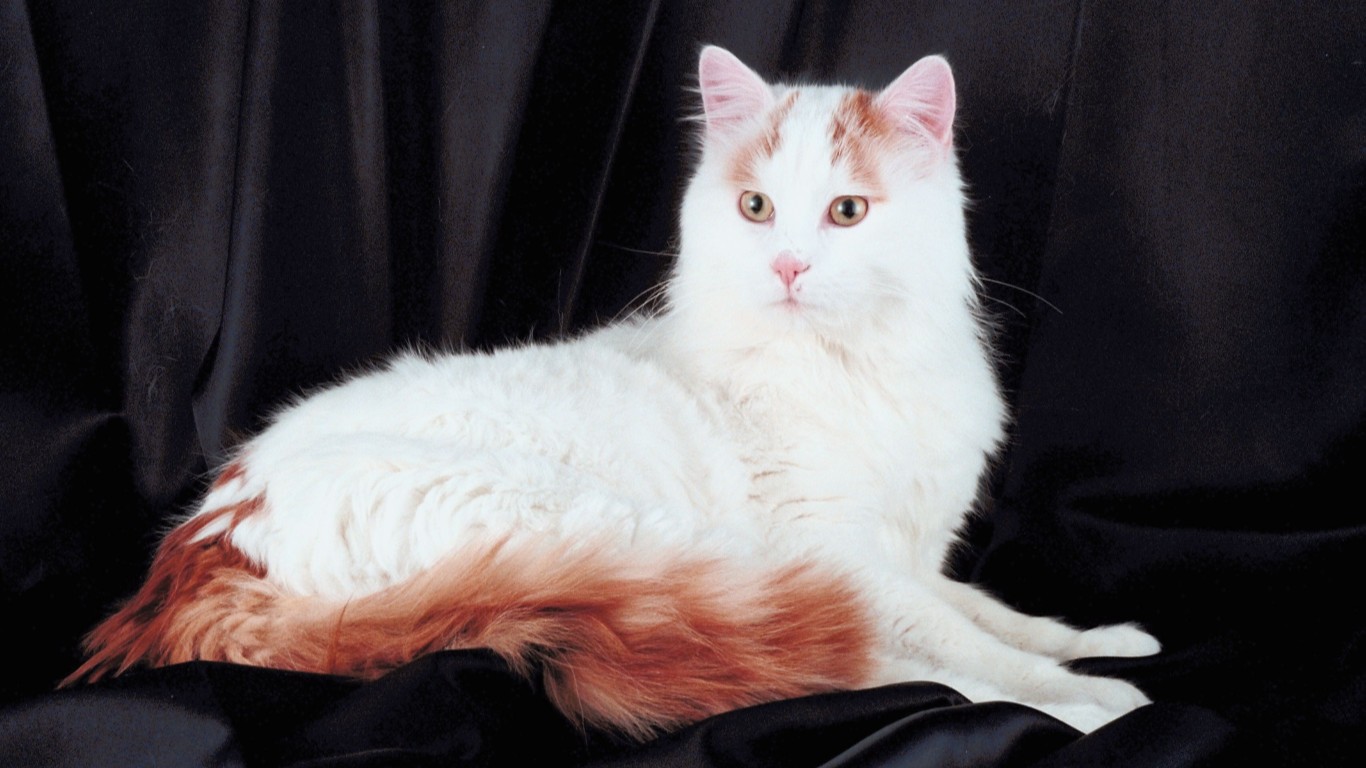
30. Turkish Van
> Ratio: 2.01
> Difference from Golden Ratio: 0.4
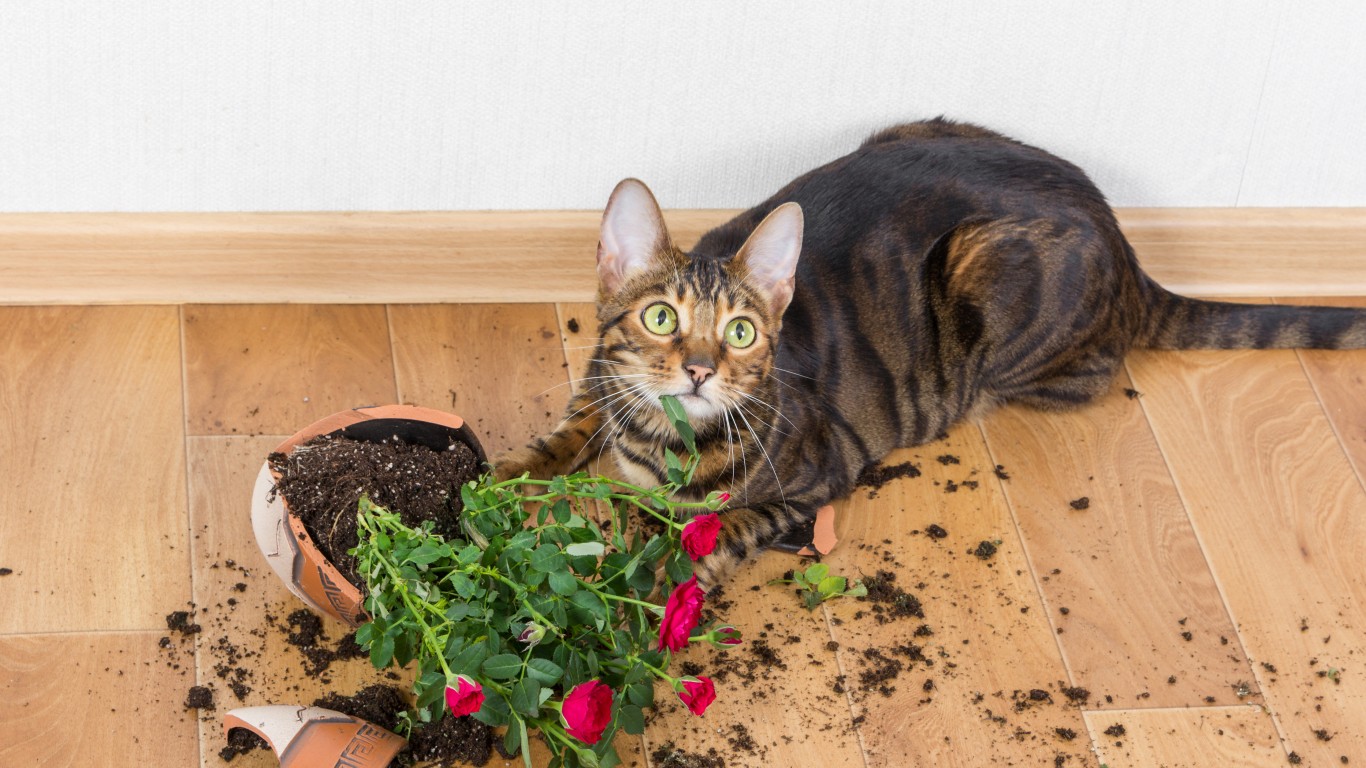
29. Toyger
> Ratio: 1.93
> Difference from Golden Ratio: 0.3

28. Bombay
> Ratio: 1.92
> Difference from Golden Ratio: 0.3
[in-text-ad-2]
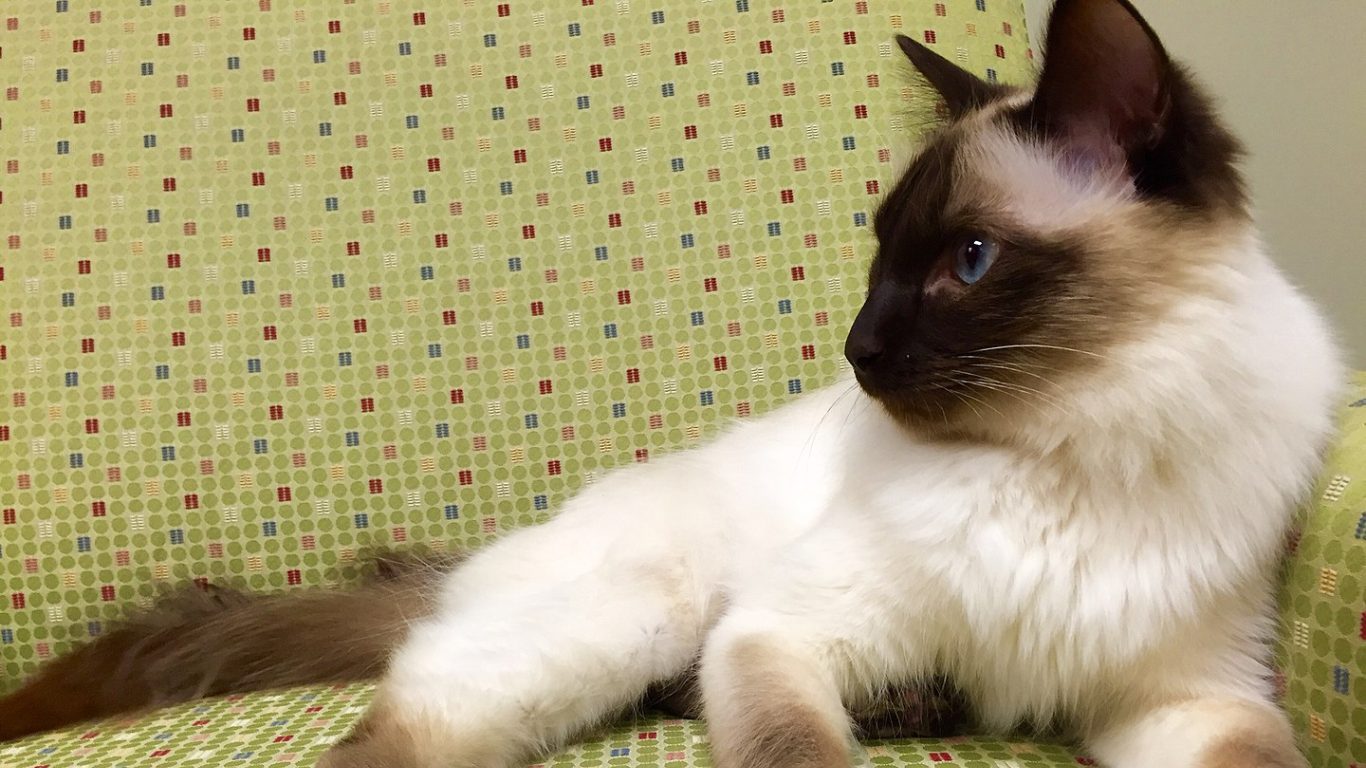
25. Balinese-Javanese
> Ratio: 1.88
> Difference from Golden Ratio: 0.3
25. Japanese Bobtail
> Ratio: 1.88
> Difference from Golden Ratio: 0.3
[in-text-ad]
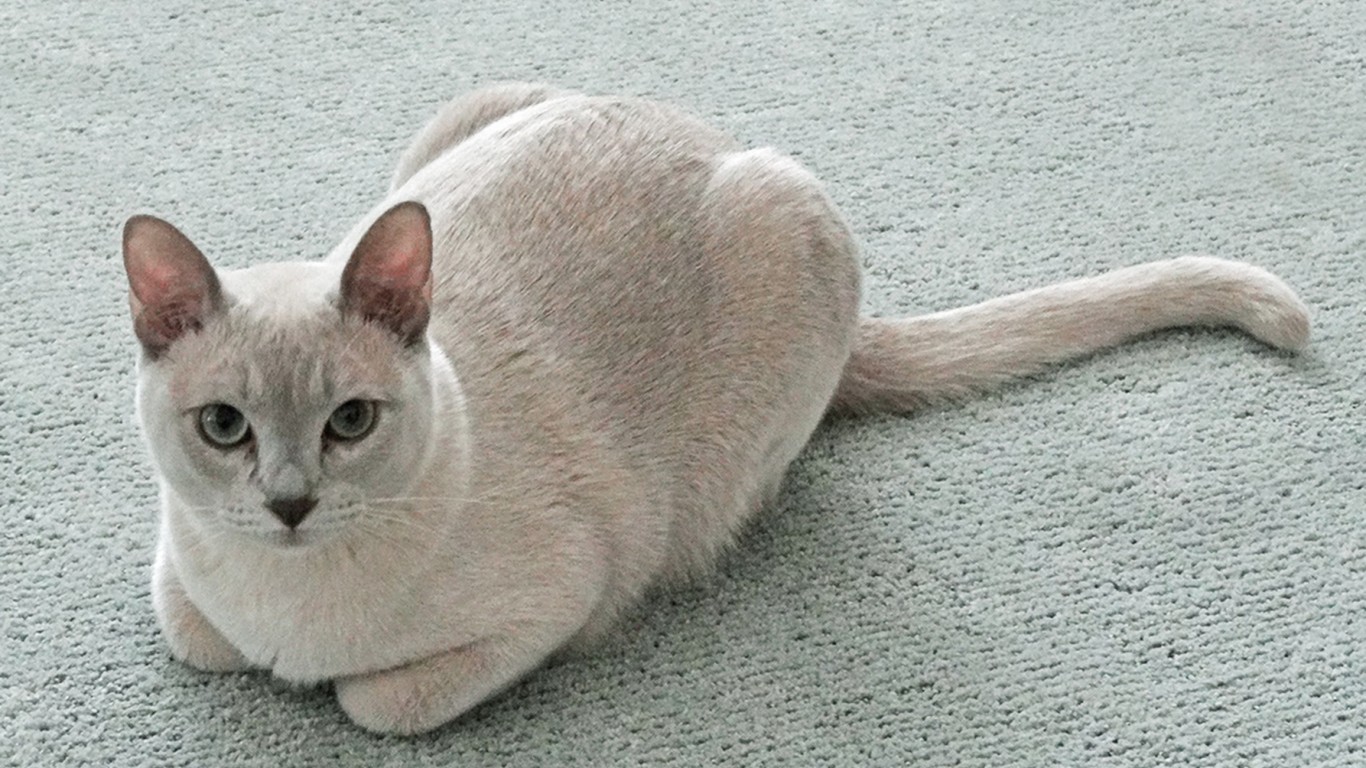
25. Tonkinese
> Ratio: 1.88
> Difference from Golden Ratio: 0.3
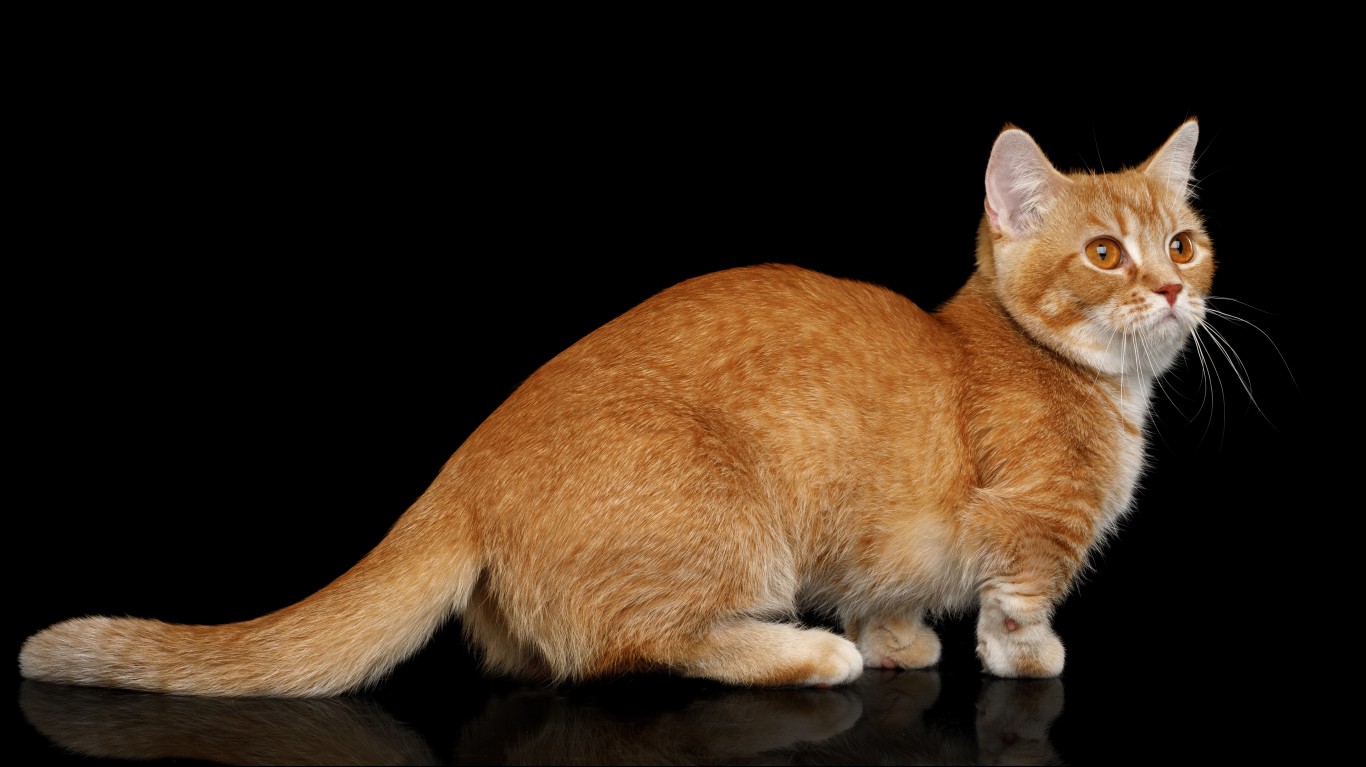
24. Munchkin
> Ratio: 1.86
> Difference from Golden Ratio: 0.2
23. European Burmese
> Ratio: 1.85
> Difference from Golden Ratio: 0.2
[in-text-ad-2]
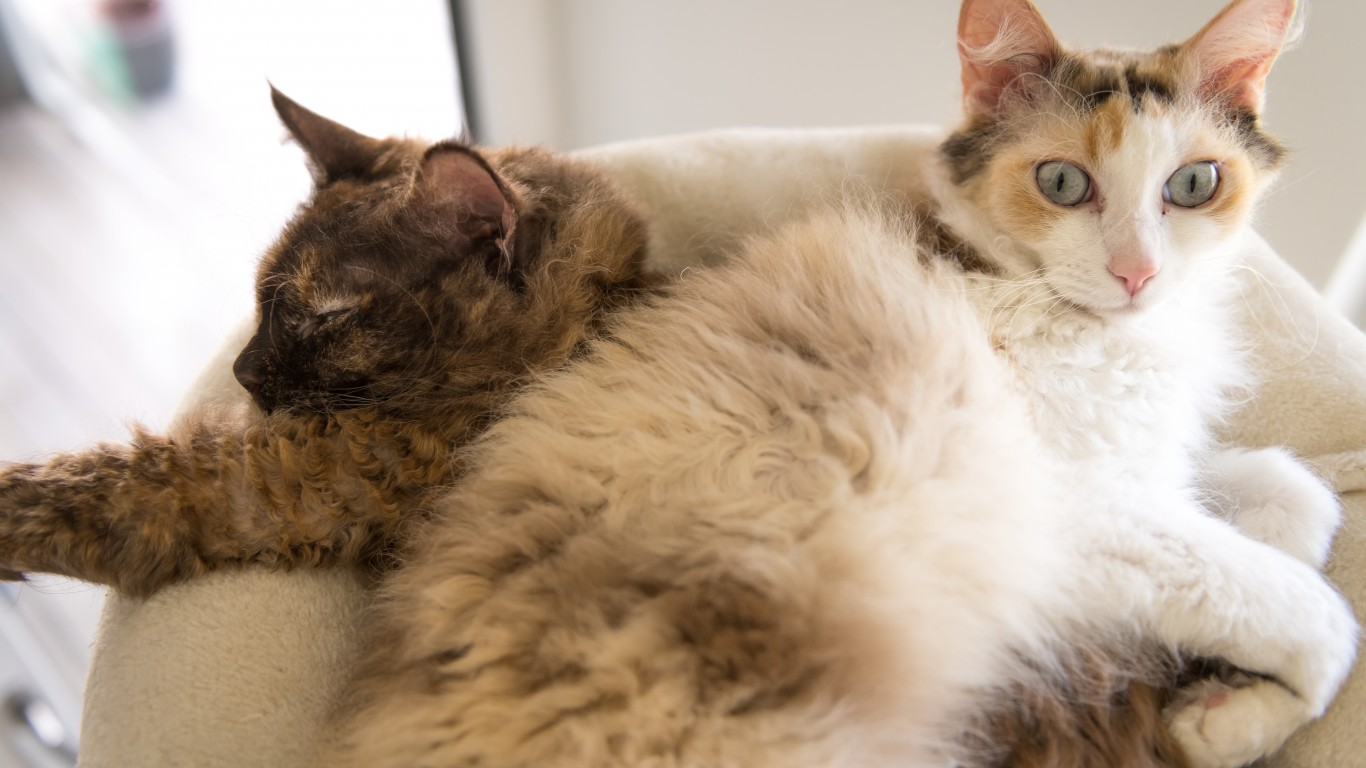
22. LaPerm
> Ratio: 1.79
> Difference from Golden Ratio: 0.2
21. Scottish Fold
> Ratio: 1.78
> Difference from Golden Ratio: 0.2
[in-text-ad]
20. Chartreux
> Ratio: 1.77
> Difference from Golden Ratio: 0.1
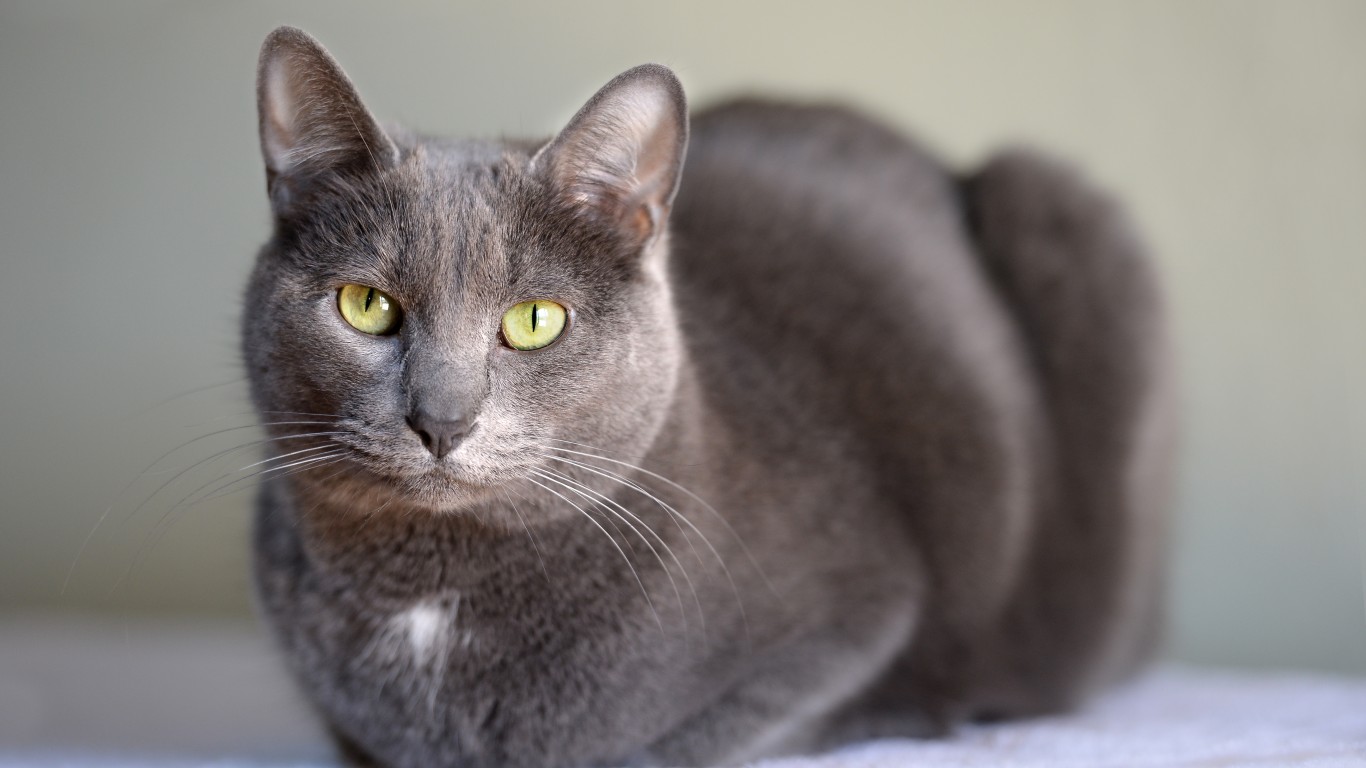
17. Korat
> Ratio: 1.76
> Difference from Golden Ratio: 0.1
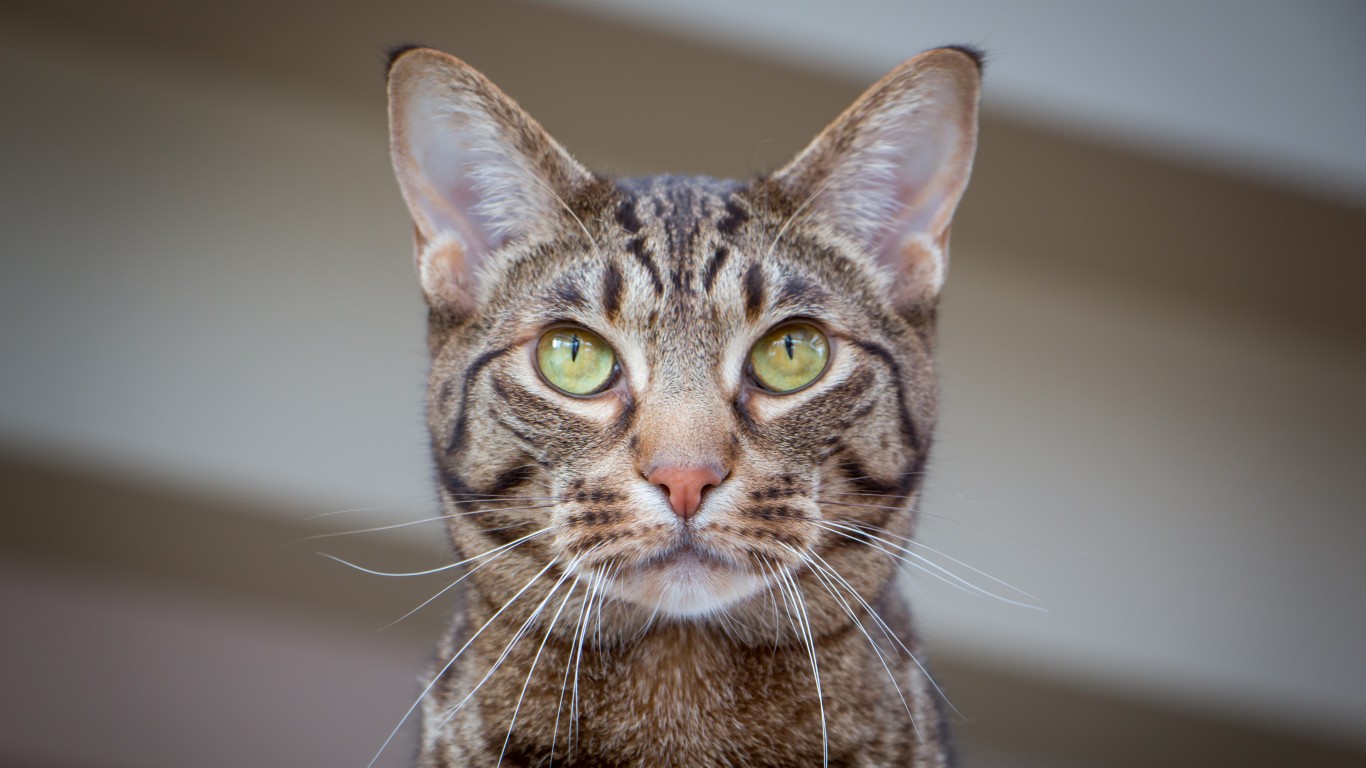
17. Ocicat
> Ratio: 1.76
> Difference from Golden Ratio: 0.1
[in-text-ad-2]

17. Ragdoll
> Ratio: 1.76
> Difference from Golden Ratio: 0.1
16. American Shorthair
> Ratio: 1.49
> Difference from Golden Ratio: 0.1
[in-text-ad]
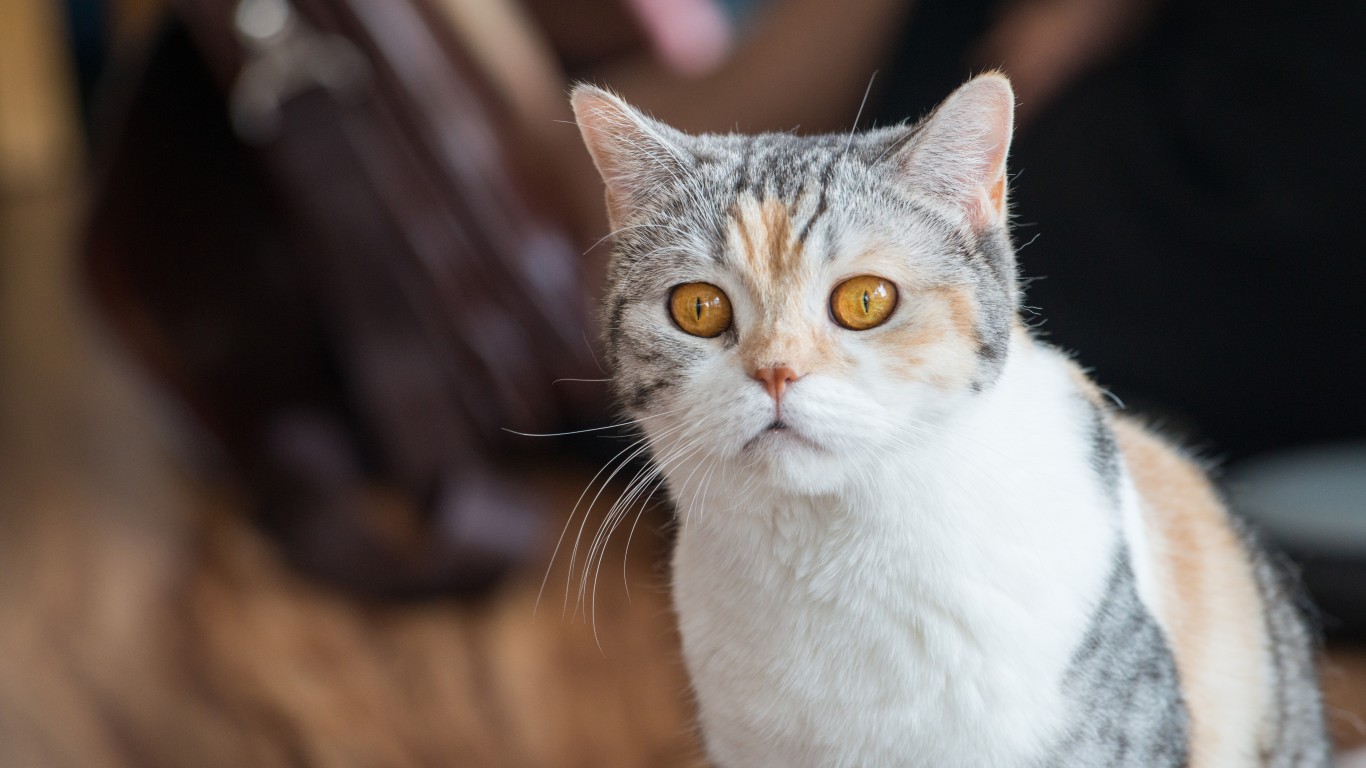
13. American Wirehair
> Ratio: 1.74
> Difference from Golden Ratio: 0.1
13. Birman
> Ratio: 1.74
> Difference from Golden Ratio: 0.1
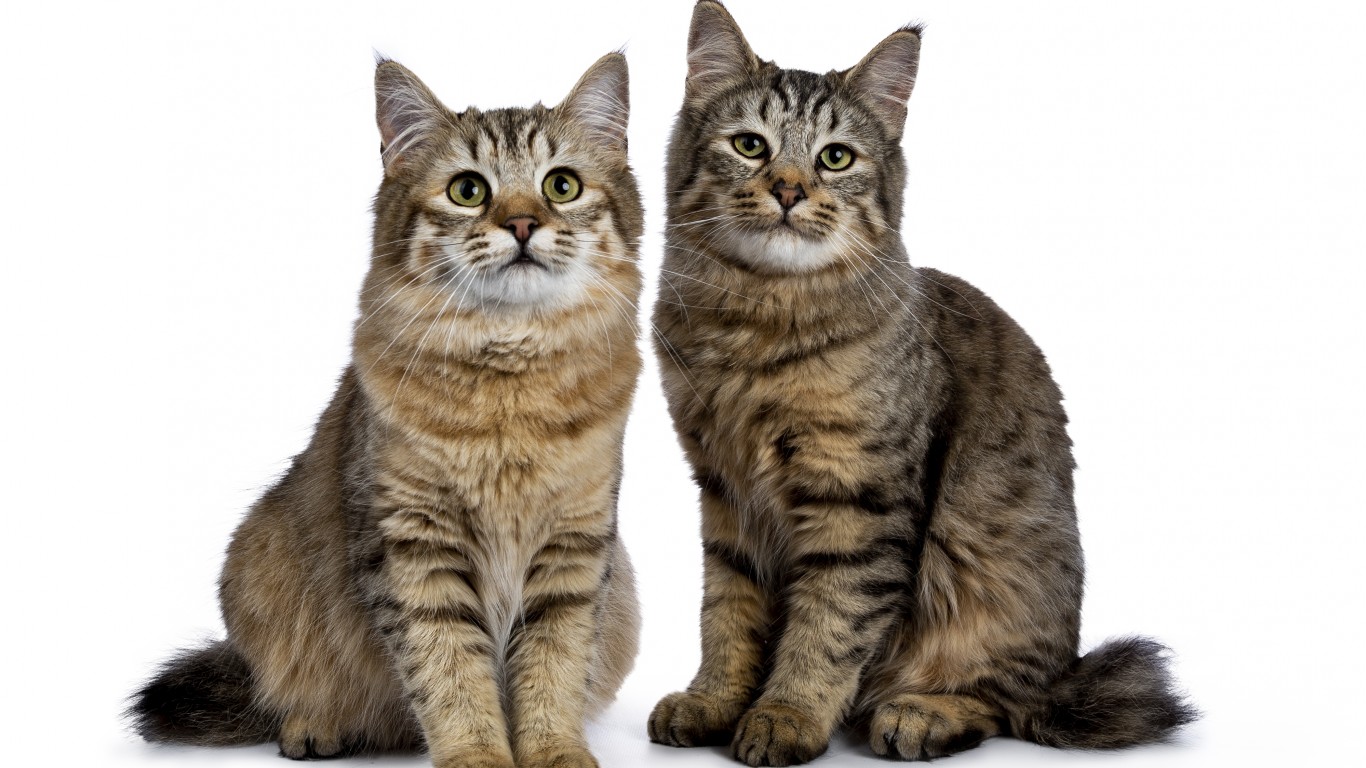
13. Pixiebob
> Ratio: 1.74
> Difference from Golden Ratio: 0.1
[in-text-ad-2]
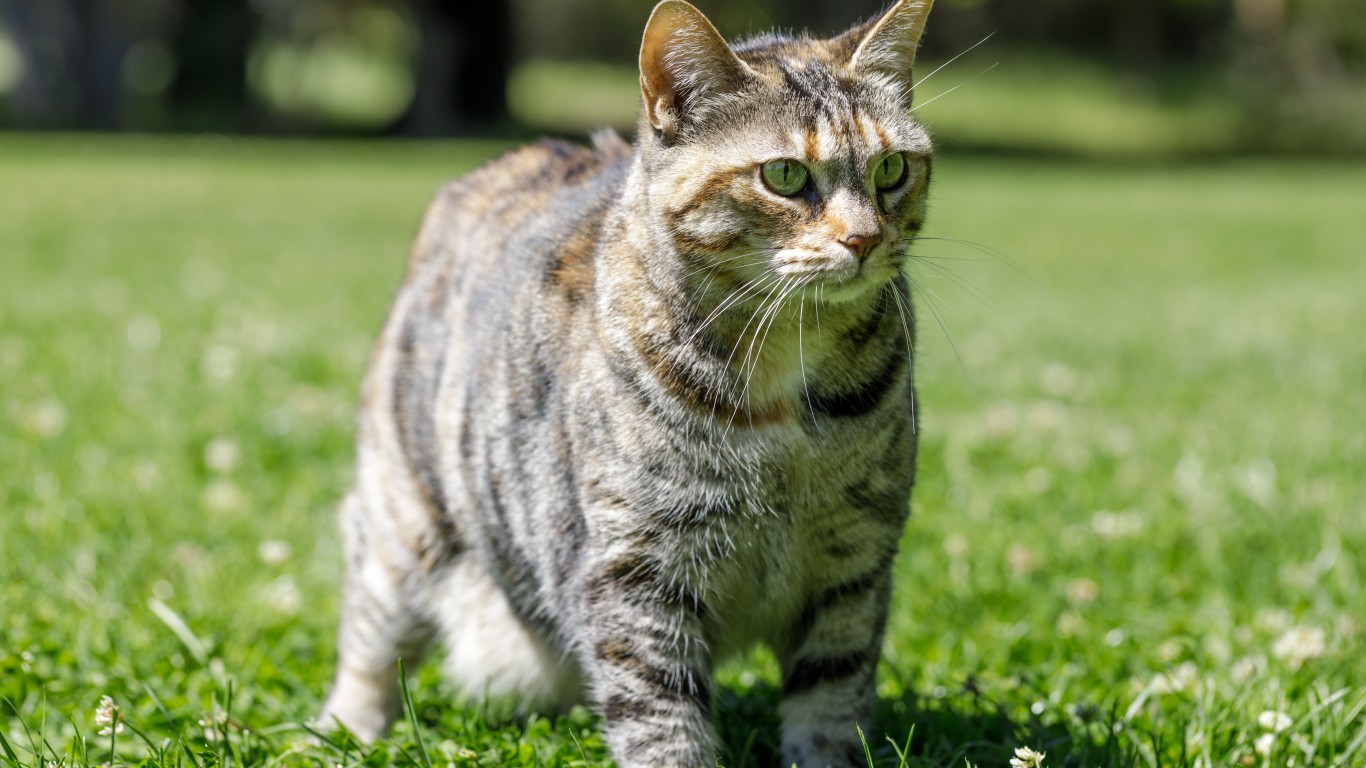
12. American Bobtail
> Ratio: 1.73
> Difference from Golden Ratio: 0.1
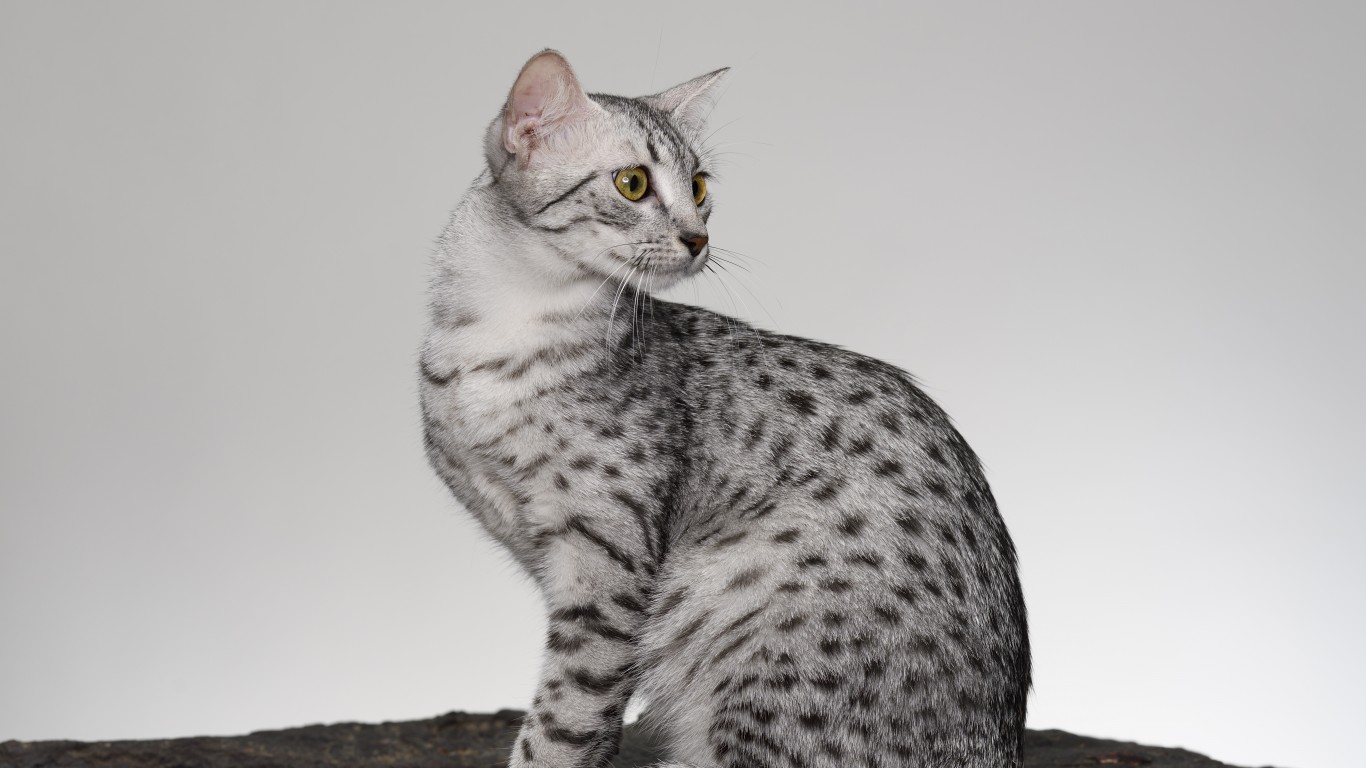
10. Egyptian Mau
> Ratio: 1.72
> Difference from Golden Ratio: 0.1
[in-text-ad]
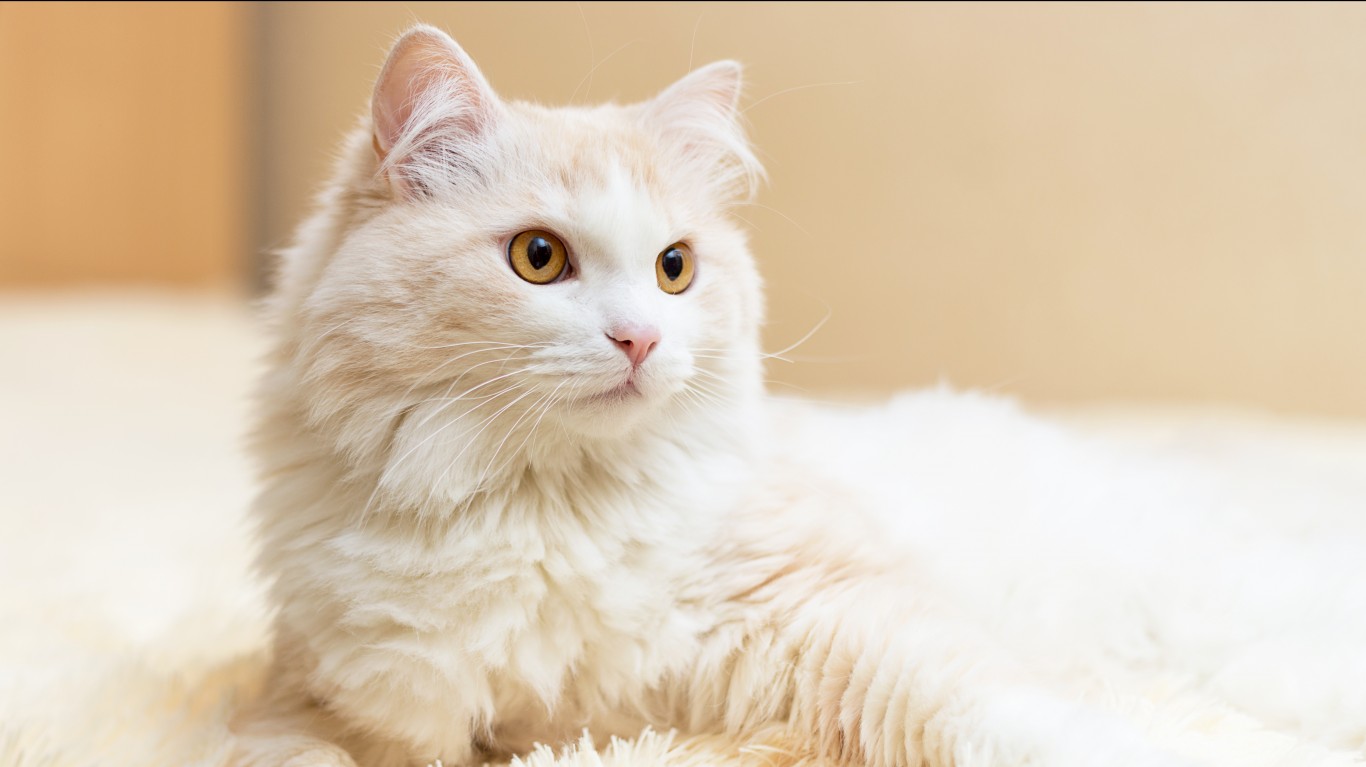
10. Turkish Angora
> Ratio: 1.72
> Difference from Golden Ratio: 0.1
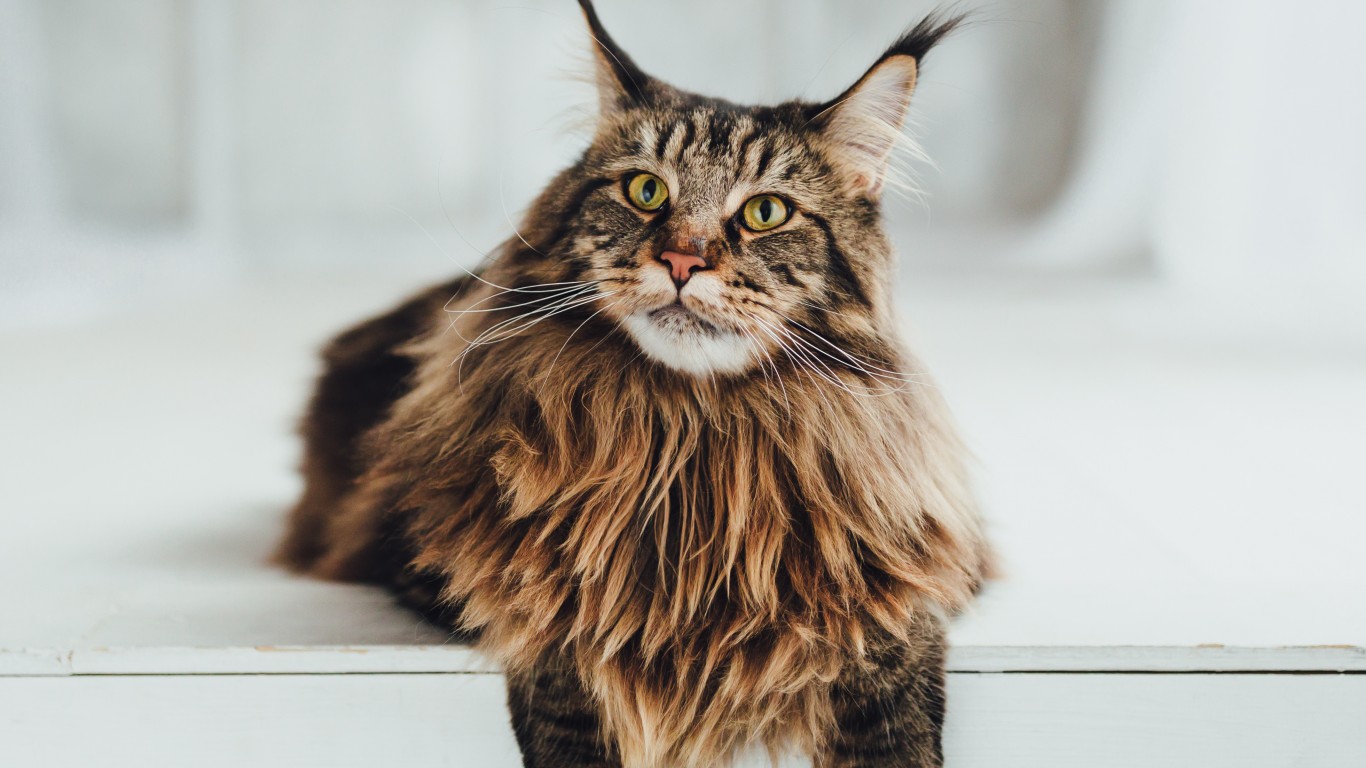
9. Maine Coon
> Ratio: 1.71
> Difference from Golden Ratio: 0.1
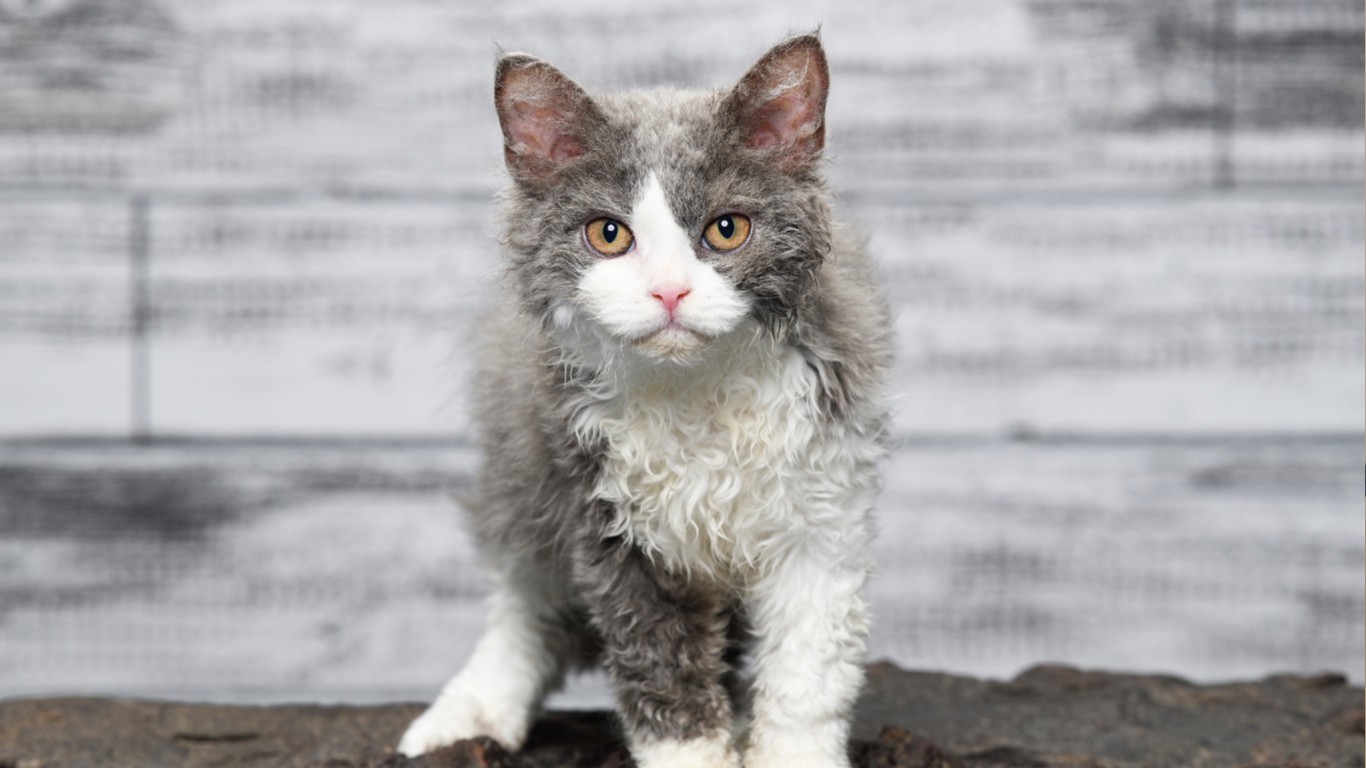
7. Selkirk Rex
> Ratio: 1.69
> Difference from Golden Ratio: 0.1
[in-text-ad-2]
7. Siamese
> Ratio: 1.55
> Difference from Golden Ratio: 0.1
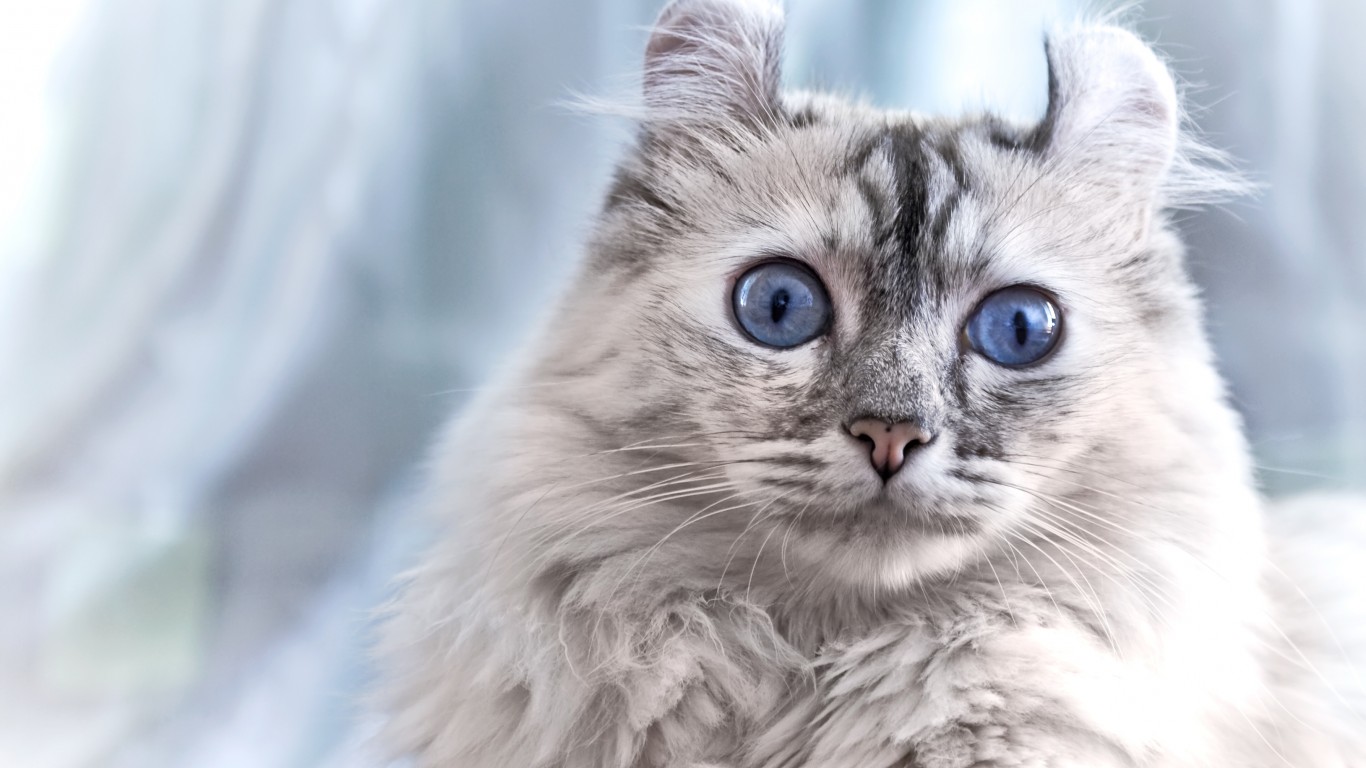
6. American Curl
> Ratio: 1.56
> Difference from Golden Ratio: 0.1
[in-text-ad]
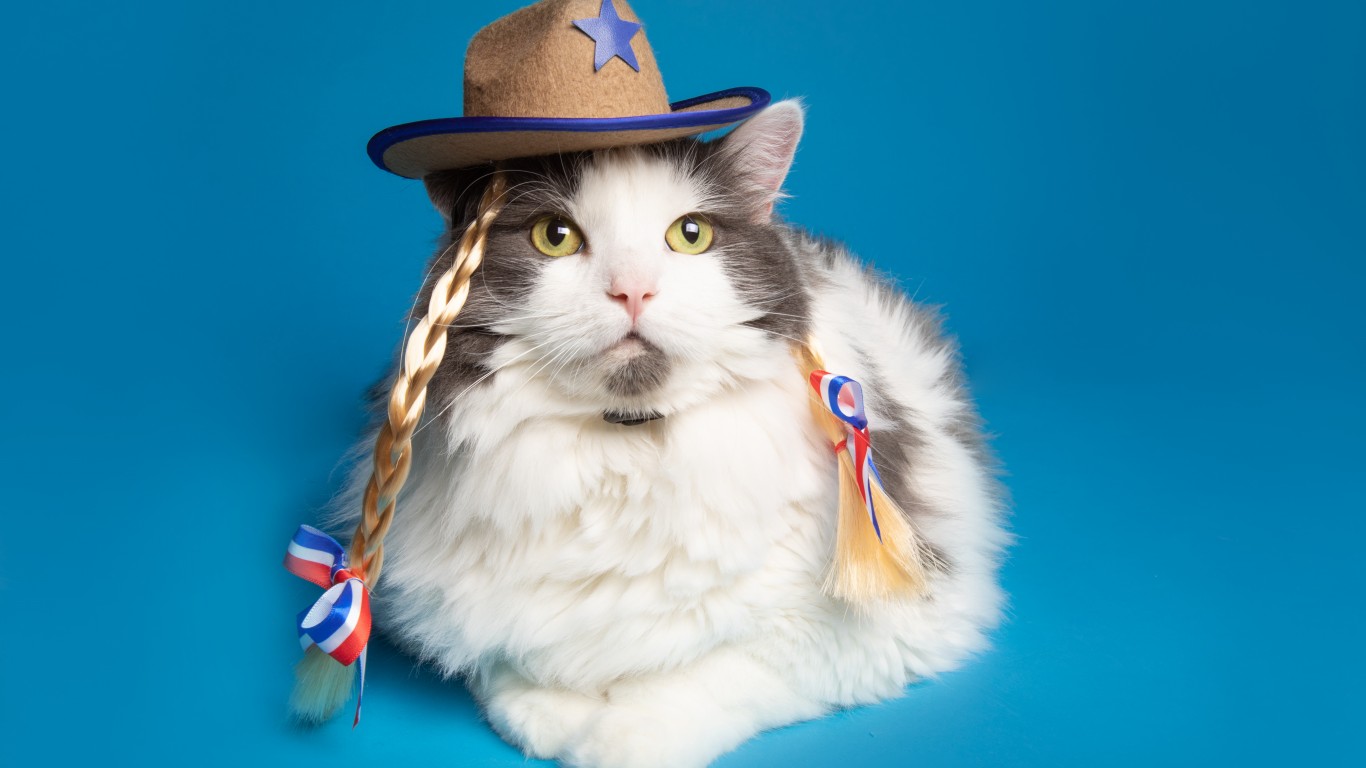
4. Ragamuffin
> Ratio: 1.67
> Difference from Golden Ratio: 0.1

4. Siberian
> Ratio: 1.67
> Difference from Golden Ratio: 0.1
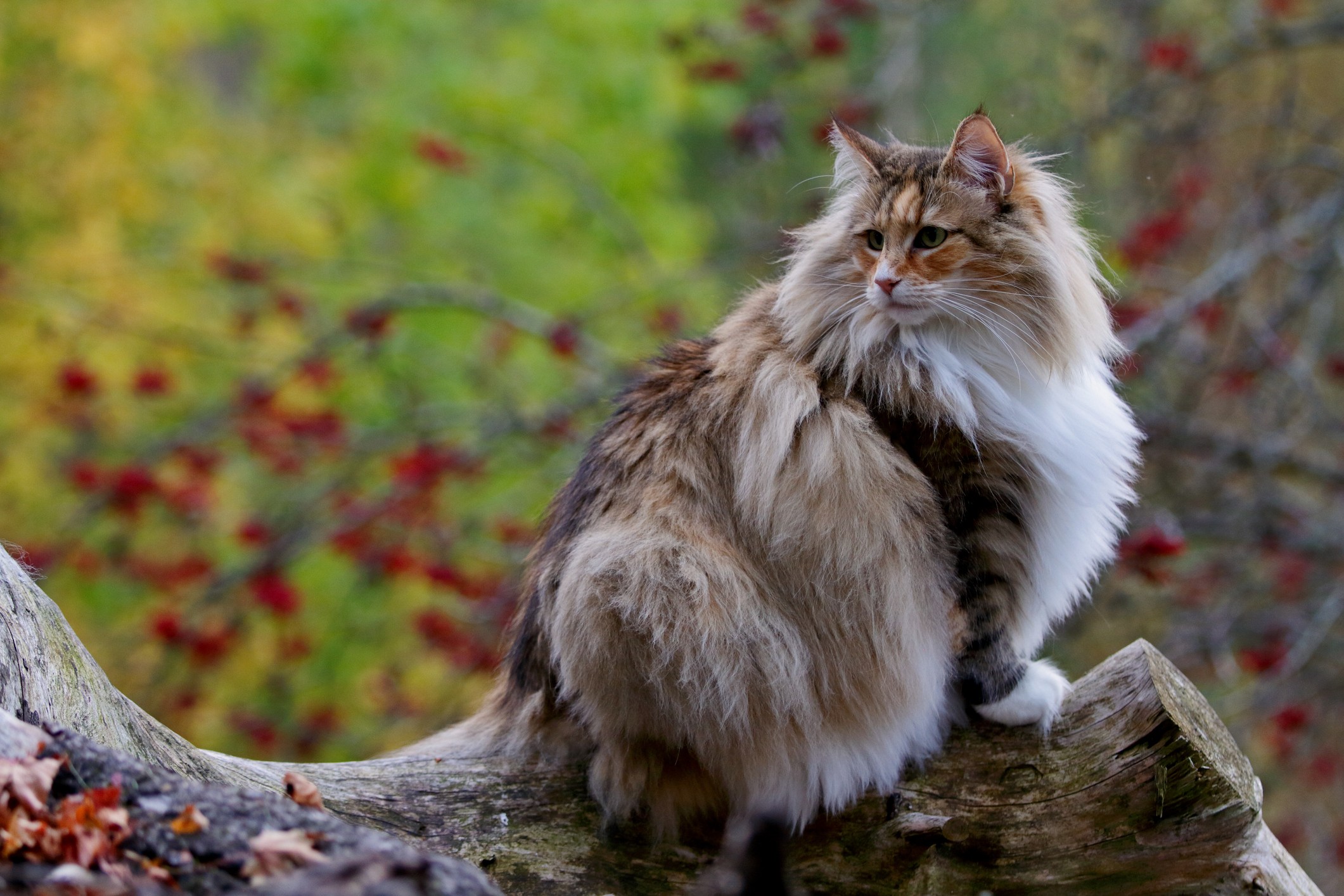
1. Norwegian Forest
> Ratio: 1.65
> Difference from Golden Ratio: 0.0
[in-text-ad-2]
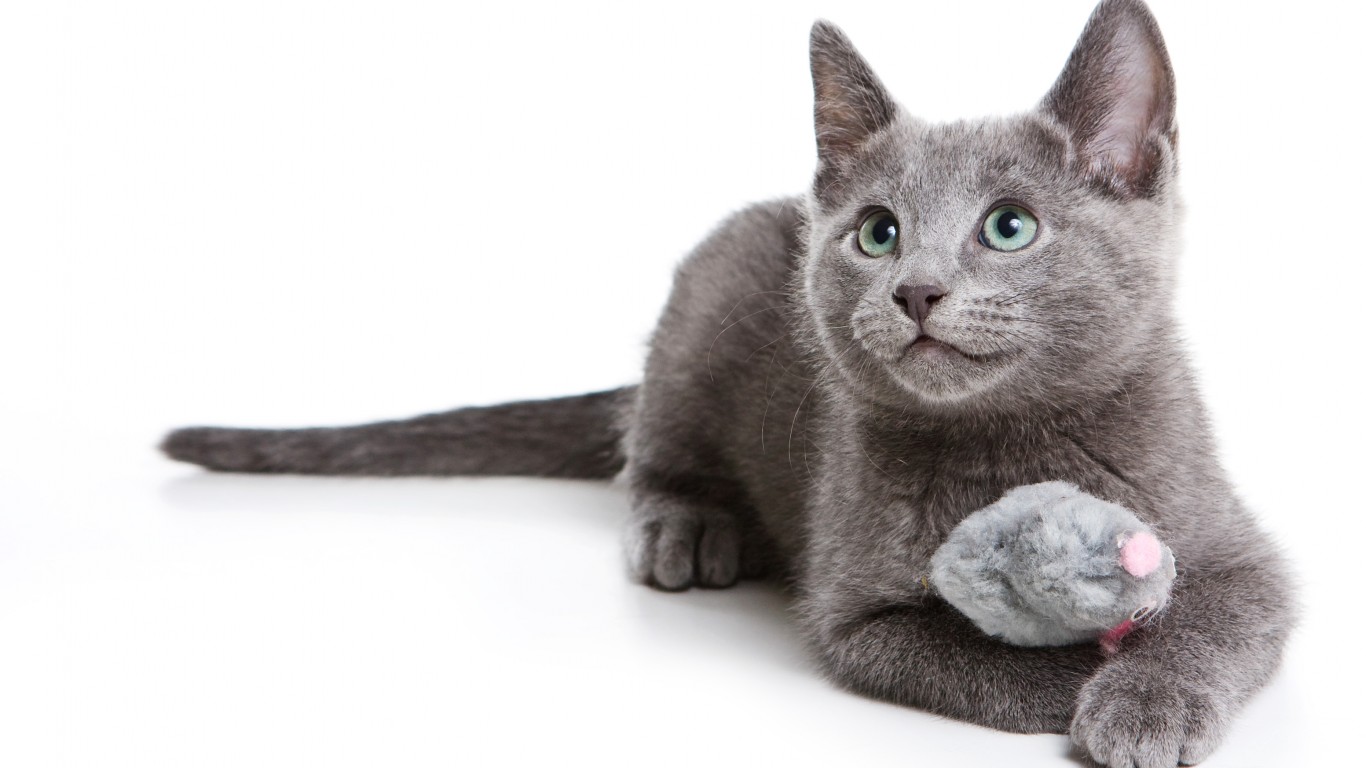
1. Russian Blue
> Ratio: 1.65
> Difference from Golden Ratio: 0.0
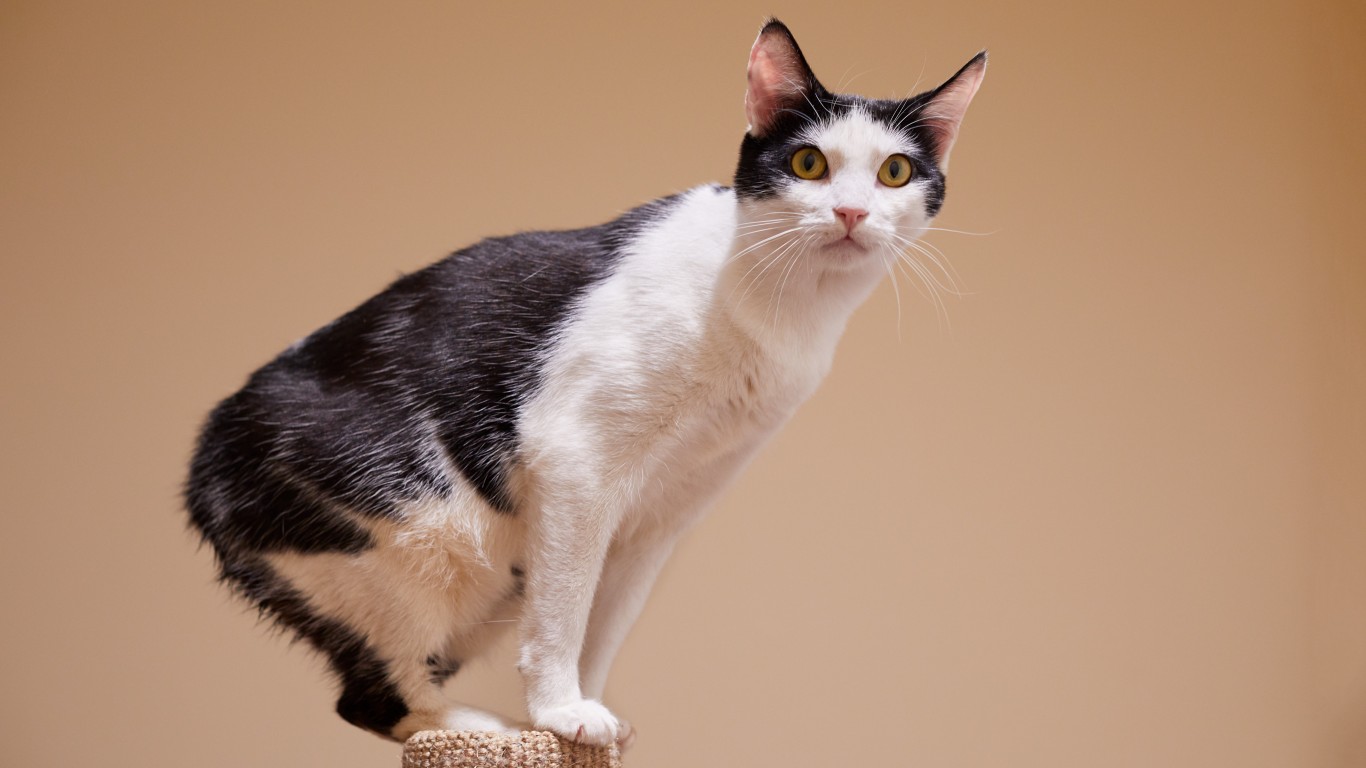
1. Manx
> Ratio: 1.59
> Difference from Golden Ratio: 0.0
Get Ready To Retire (Sponsored)
Start by taking a quick retirement quiz from SmartAsset that will match you with up to 3 financial advisors that serve your area and beyond in 5 minutes, or less.
Each advisor has been vetted by SmartAsset and is held to a fiduciary standard to act in your best interests.
Here’s how it works:
1. Answer SmartAsset advisor match quiz
2. Review your pre-screened matches at your leisure. Check out the advisors’ profiles.
3. Speak with advisors at no cost to you. Have an introductory call on the phone or introduction in person and choose whom to work with in the future
Thank you for reading! Have some feedback for us?
Contact the 24/7 Wall St. editorial team.
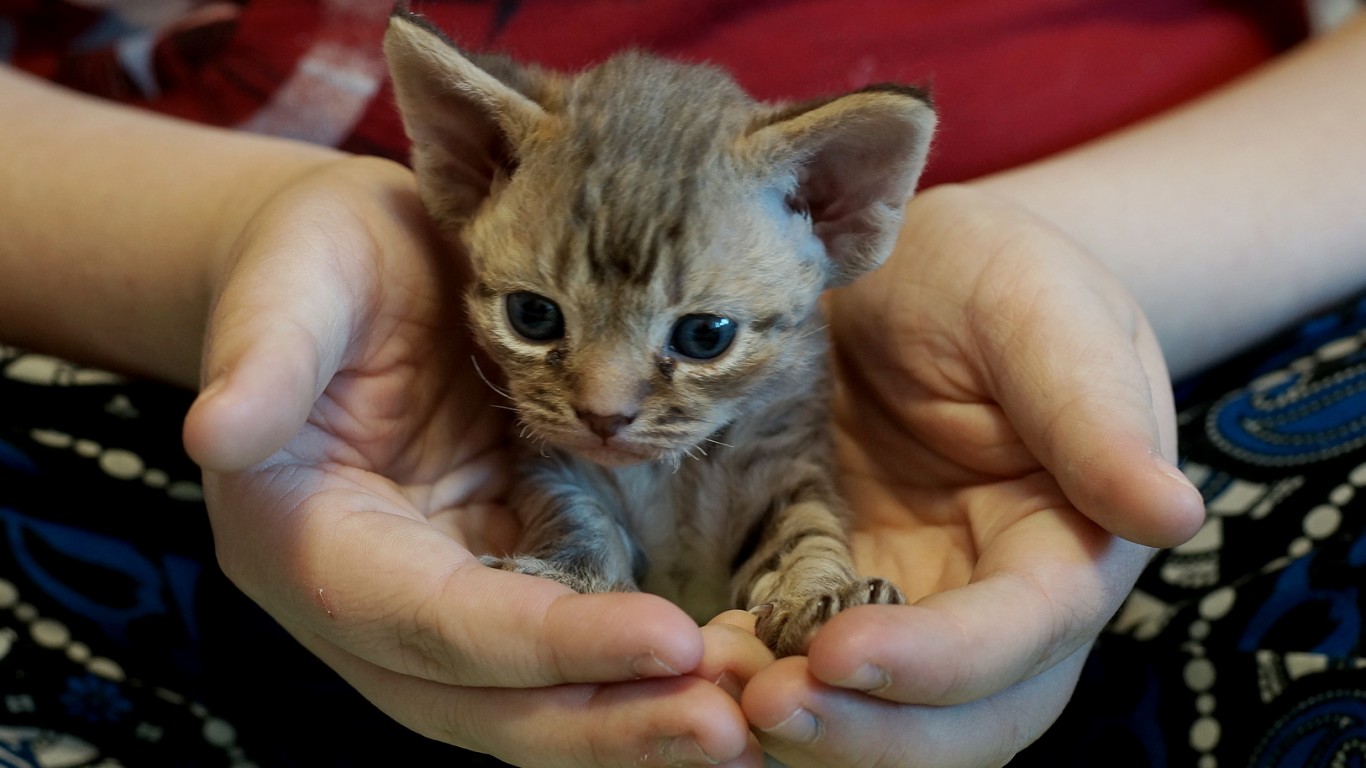
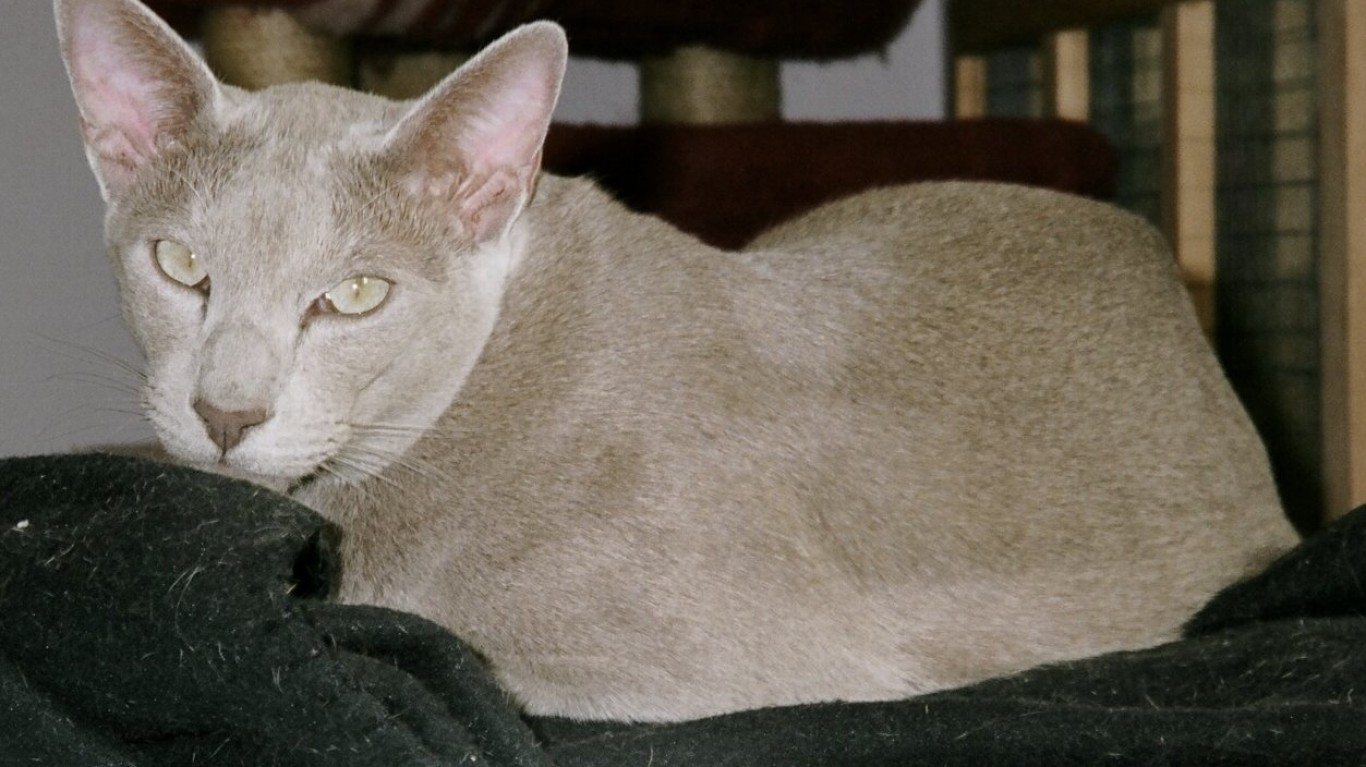
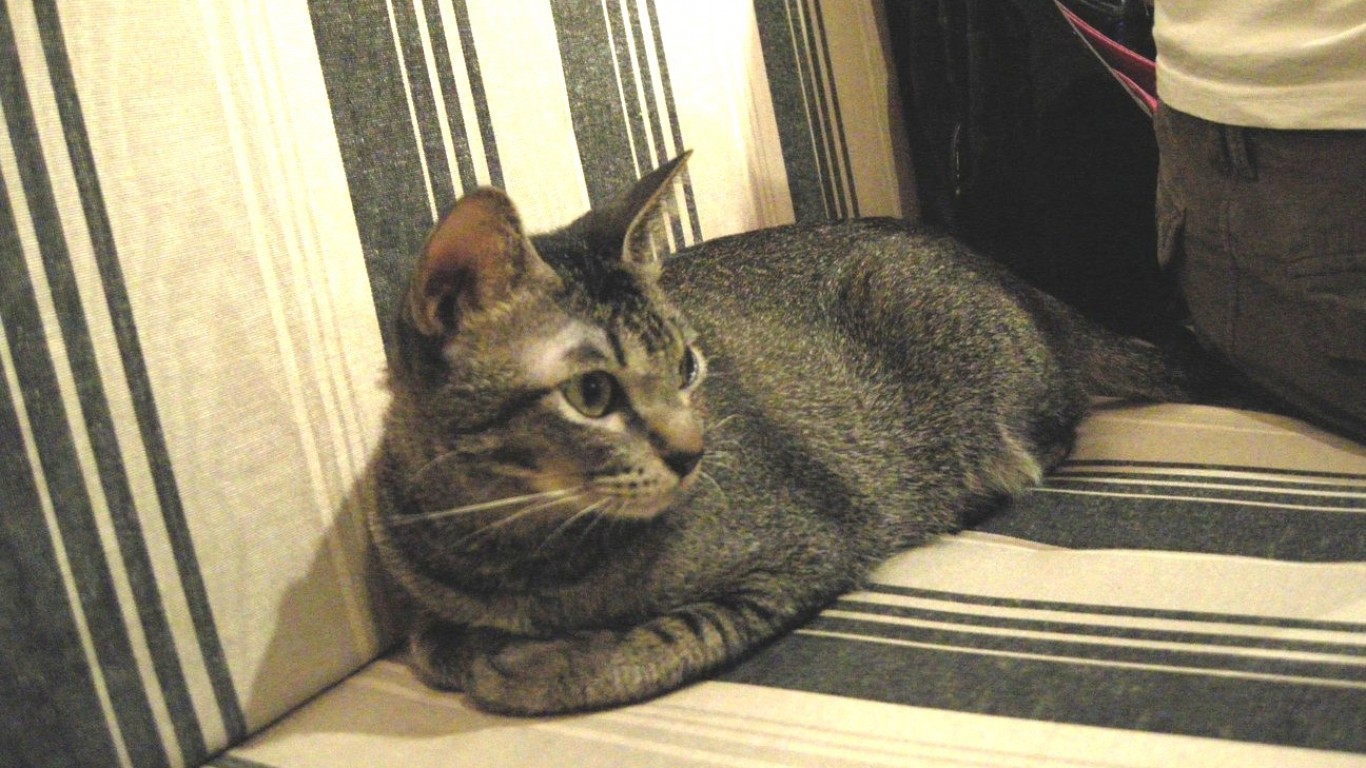
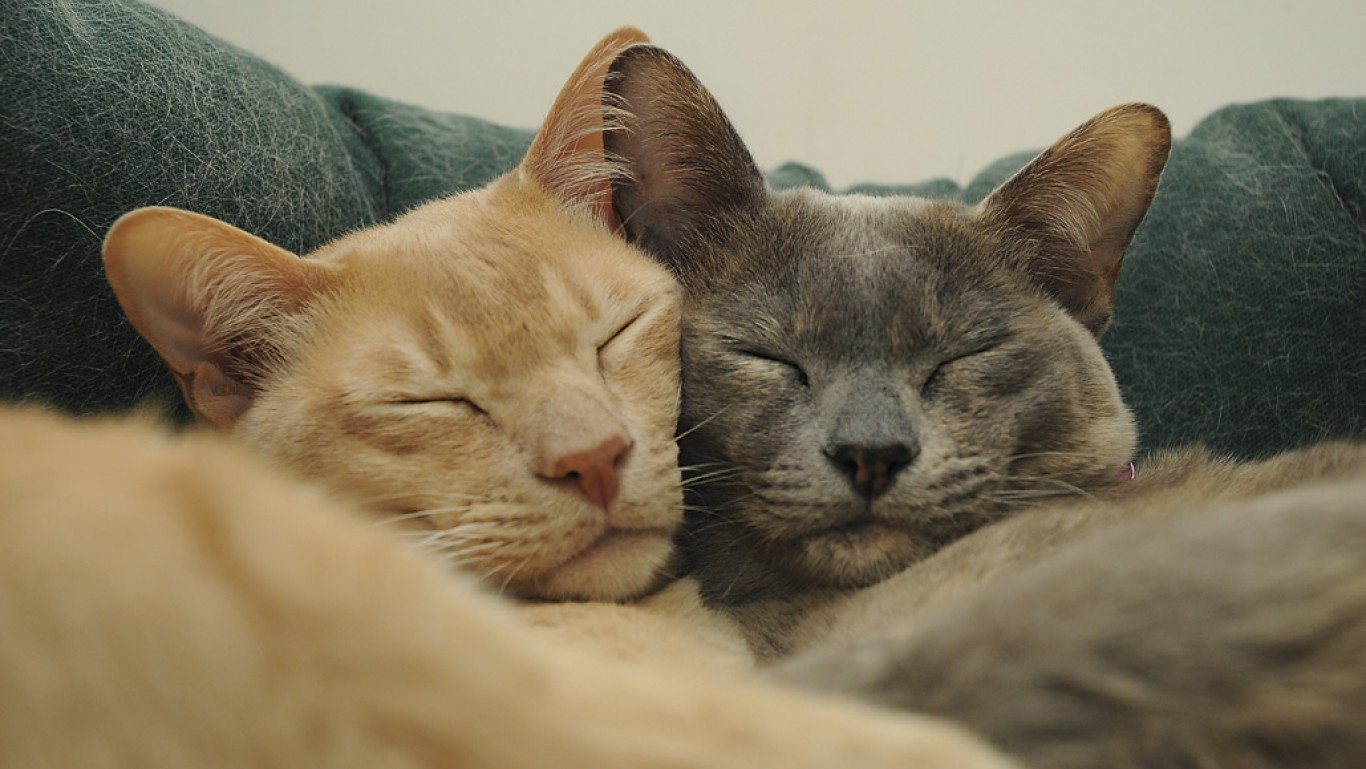
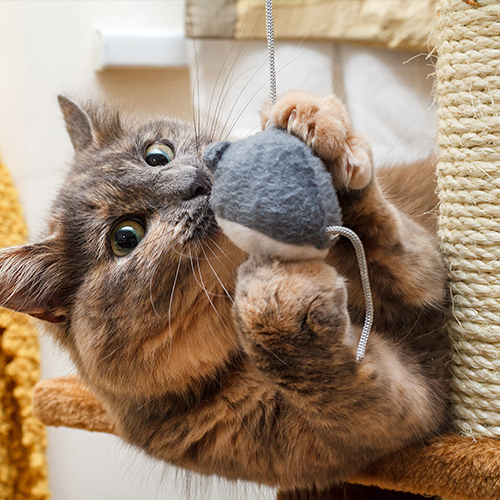 24/7 Wall St.
24/7 Wall St.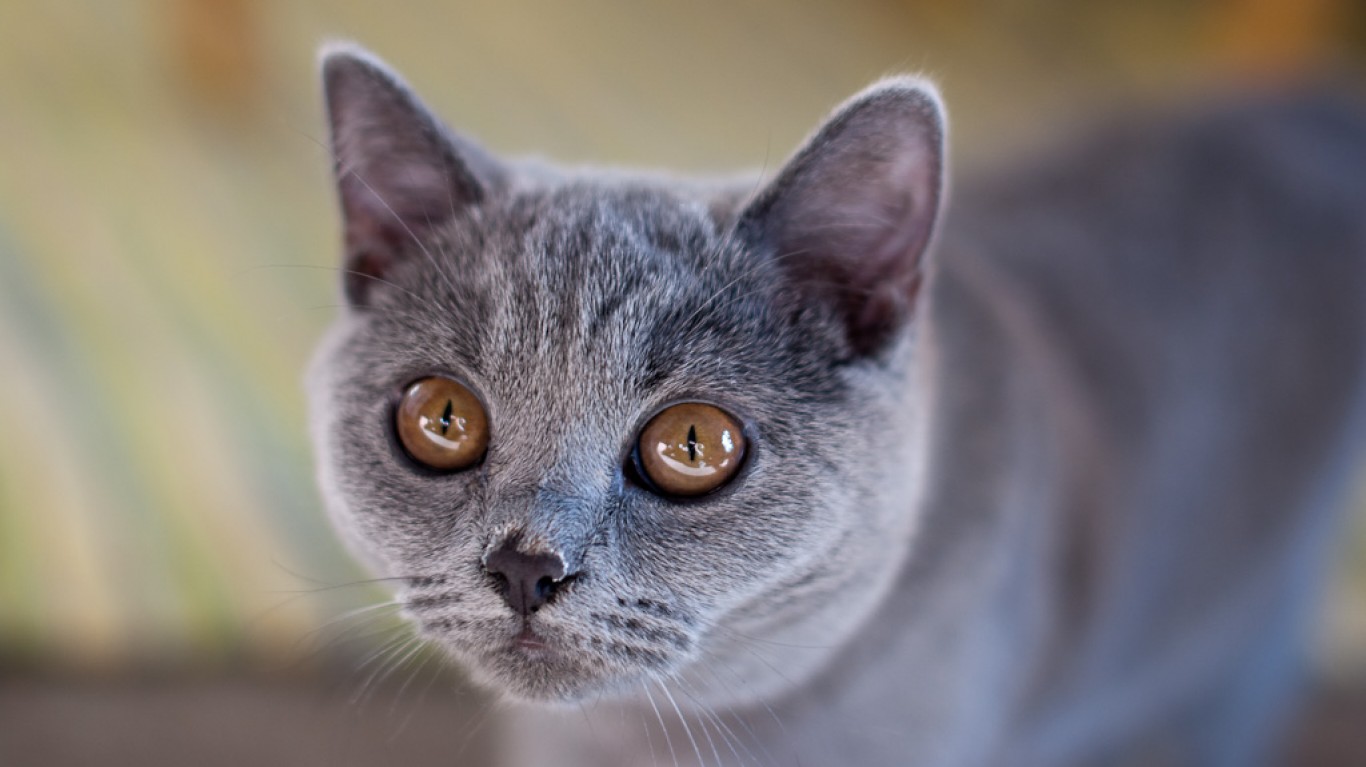
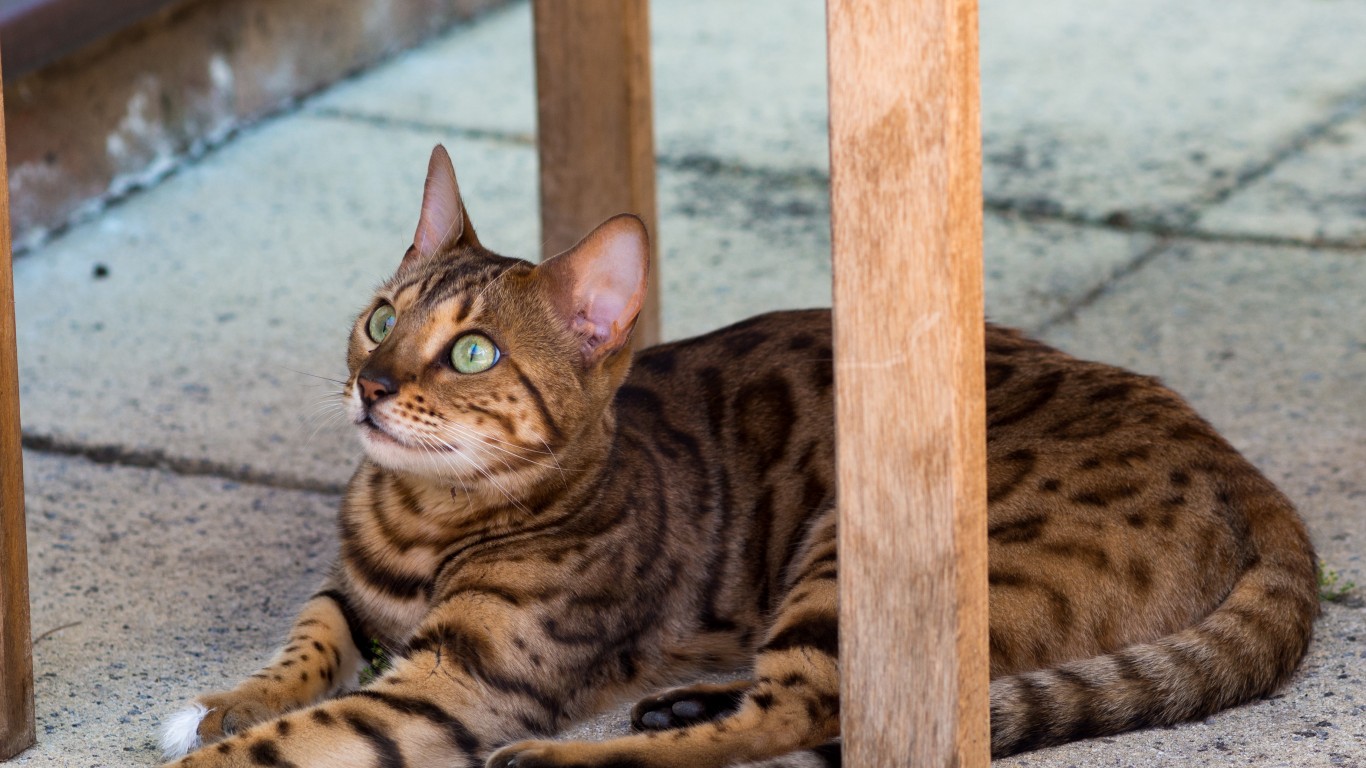
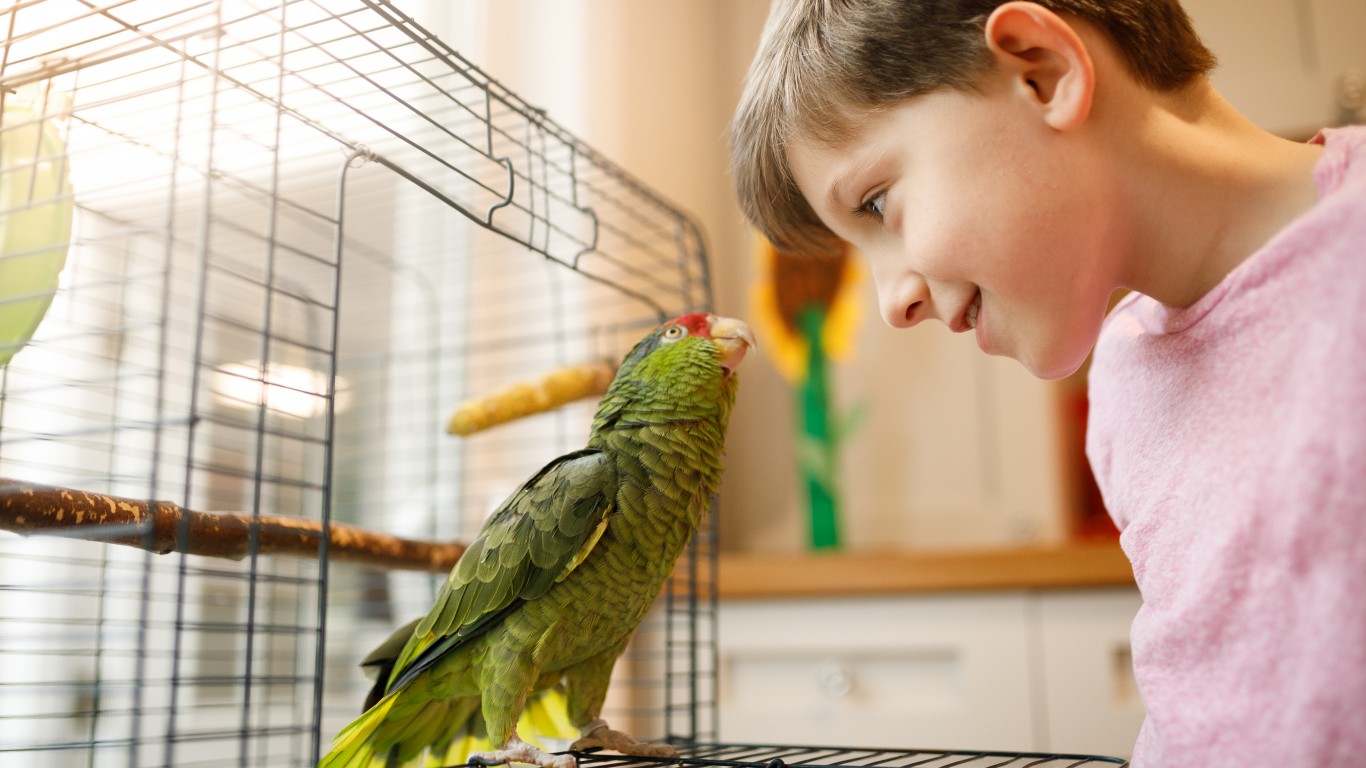 24/7 Wall St.
24/7 Wall St.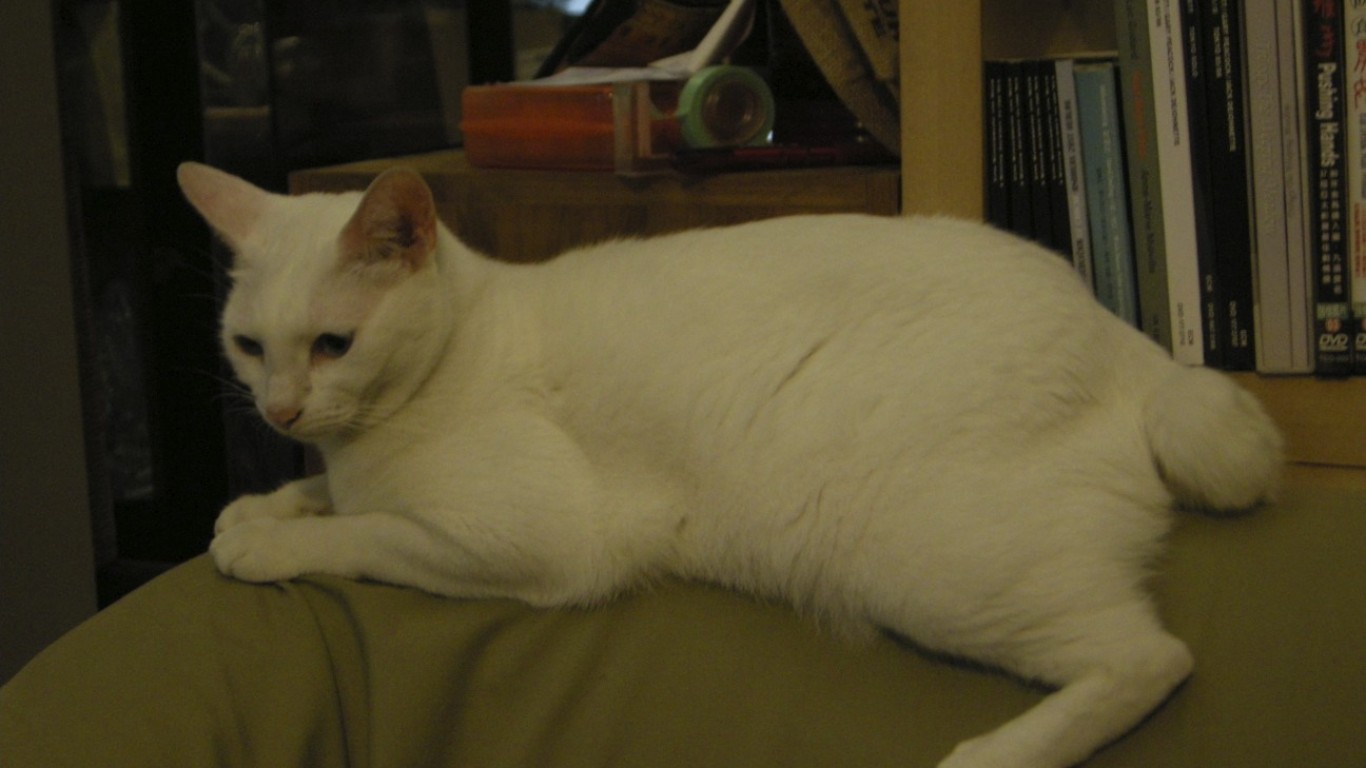
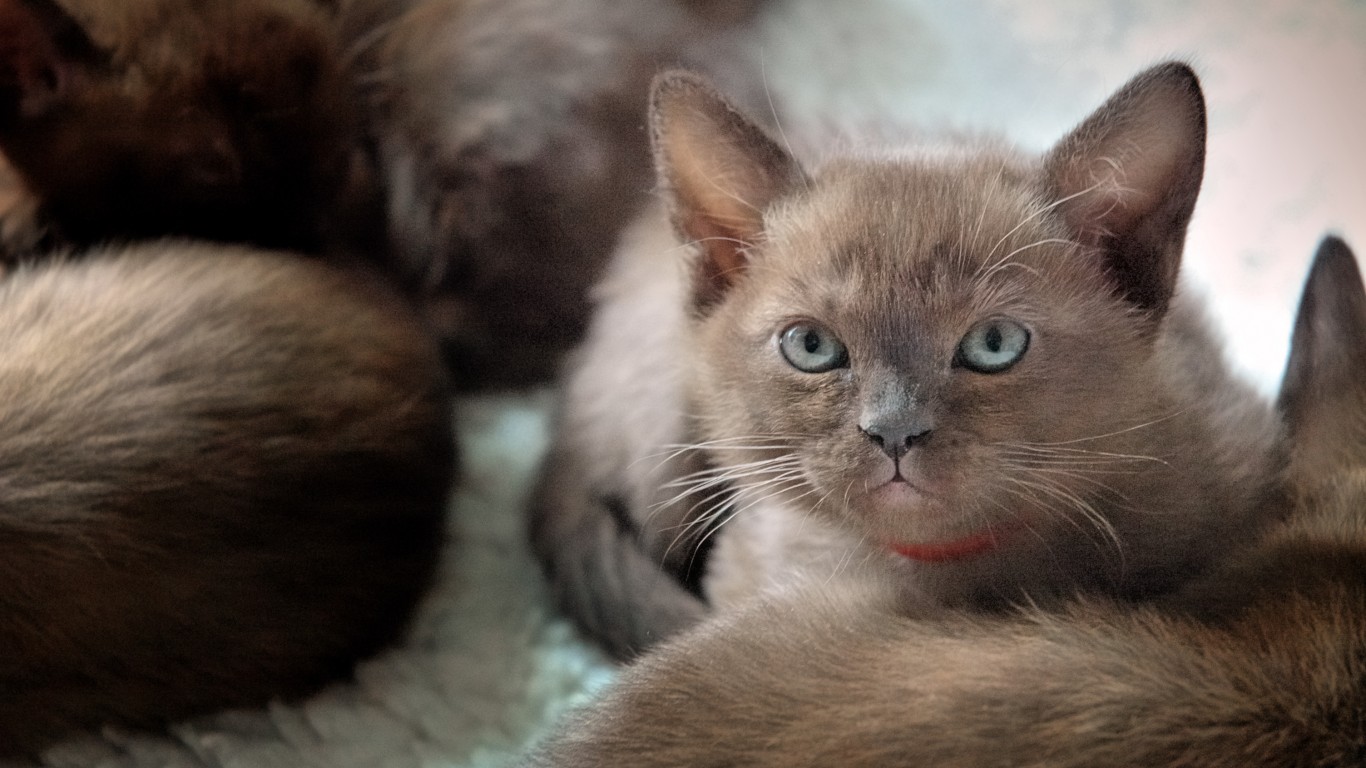
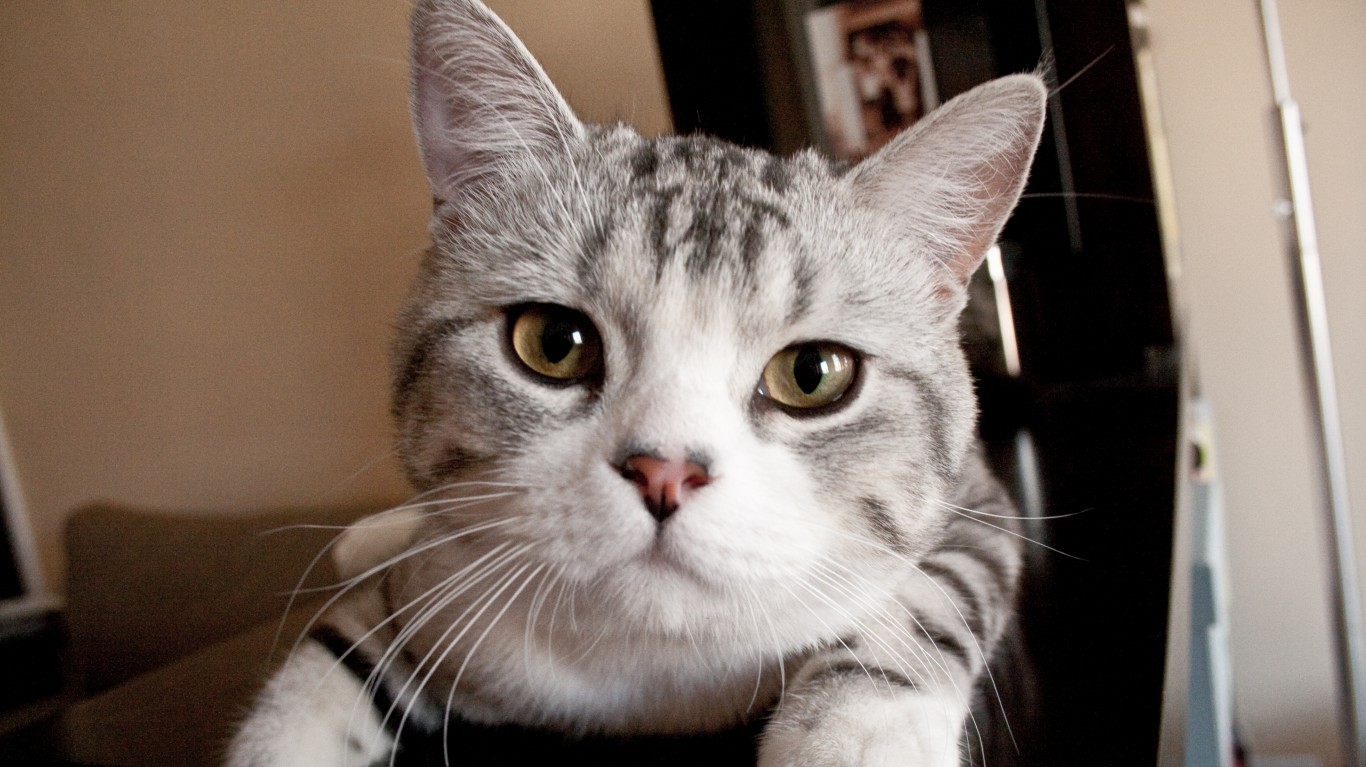
 24/7 Wall St.
24/7 Wall St.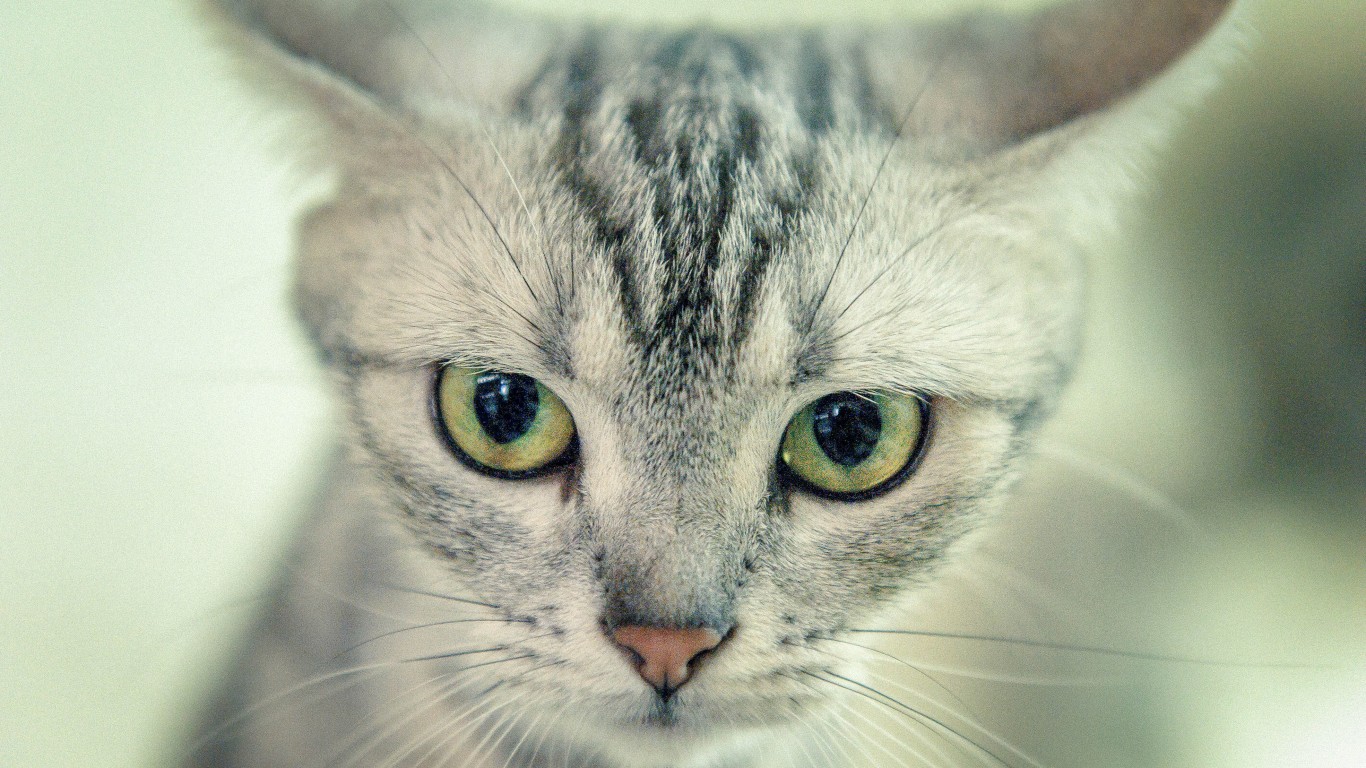
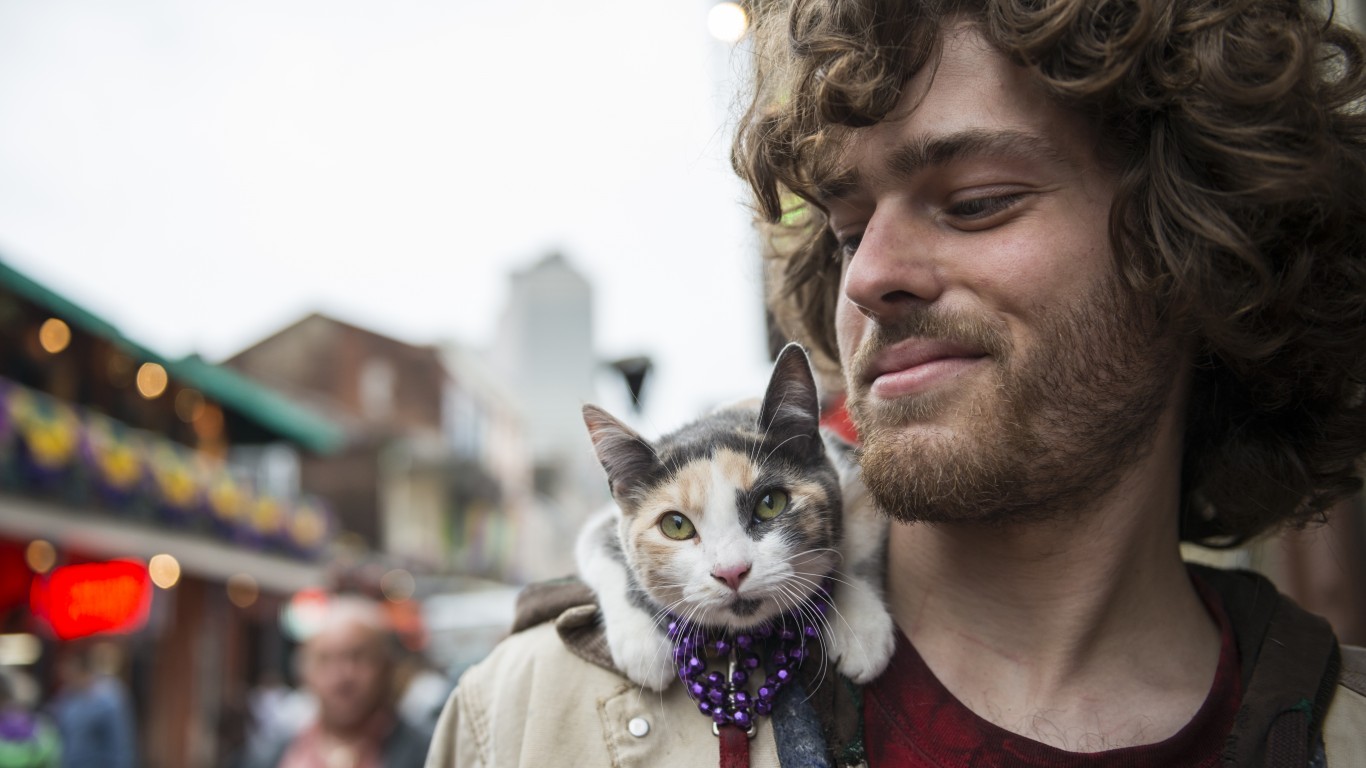 24/7 Wall St.
24/7 Wall St.